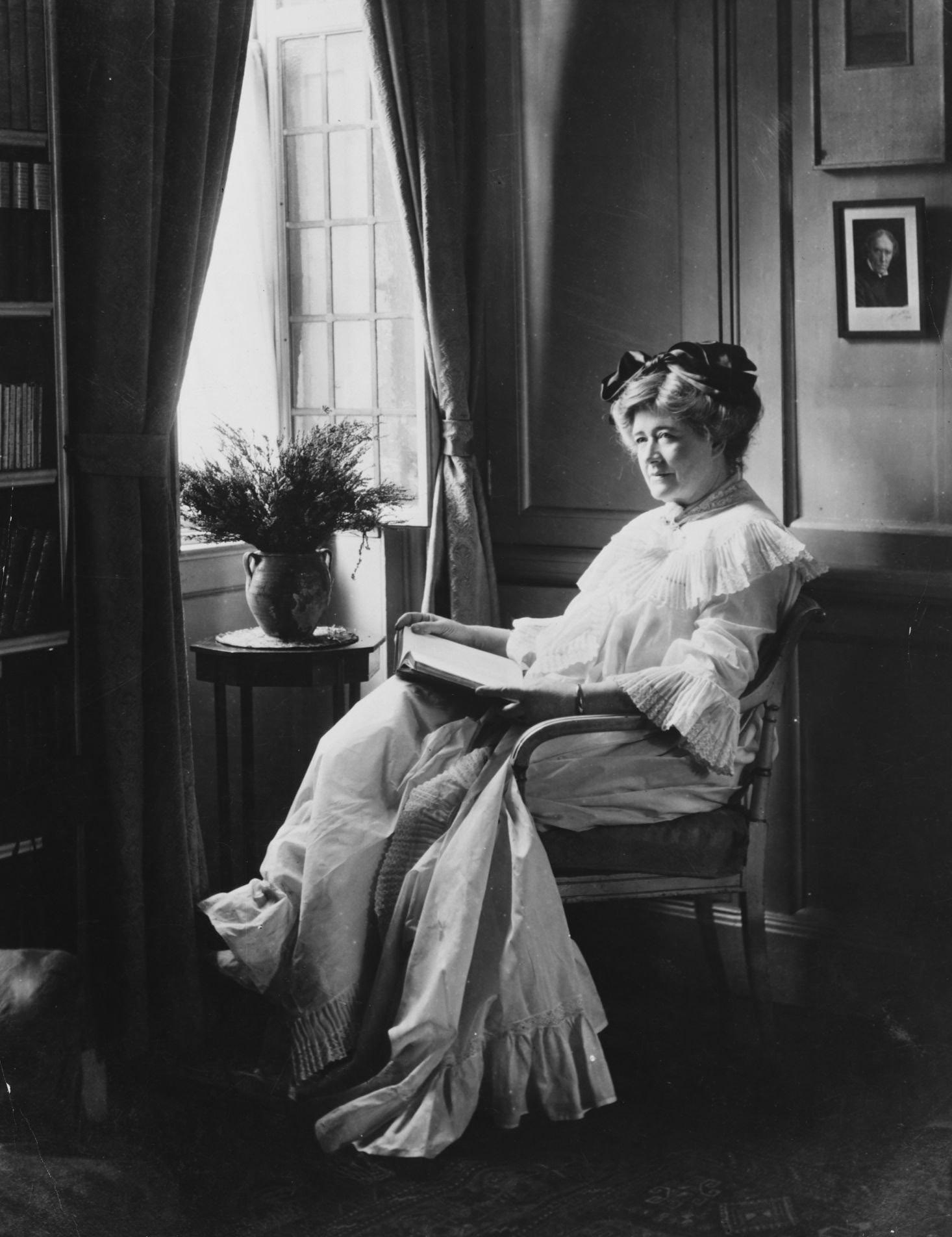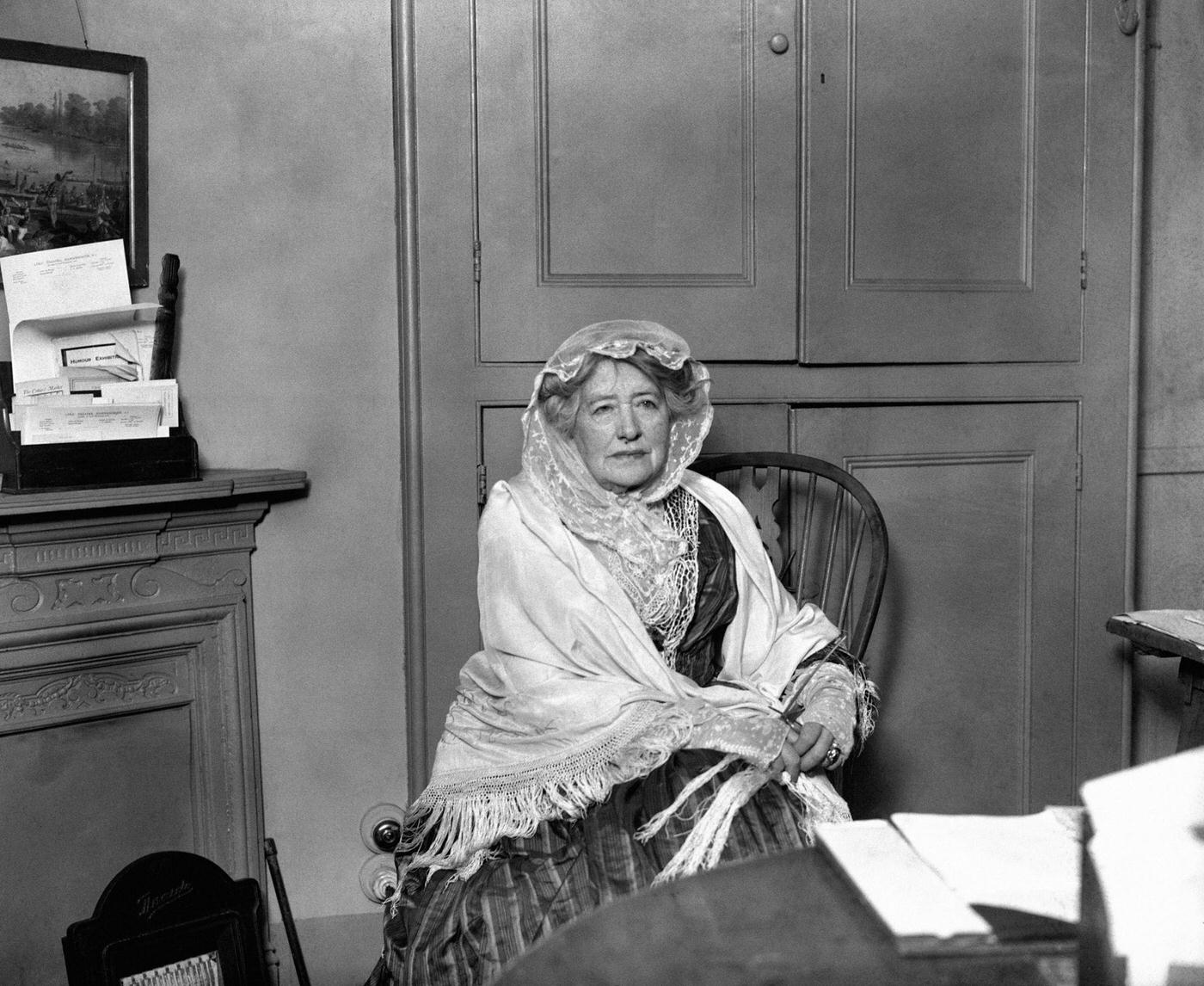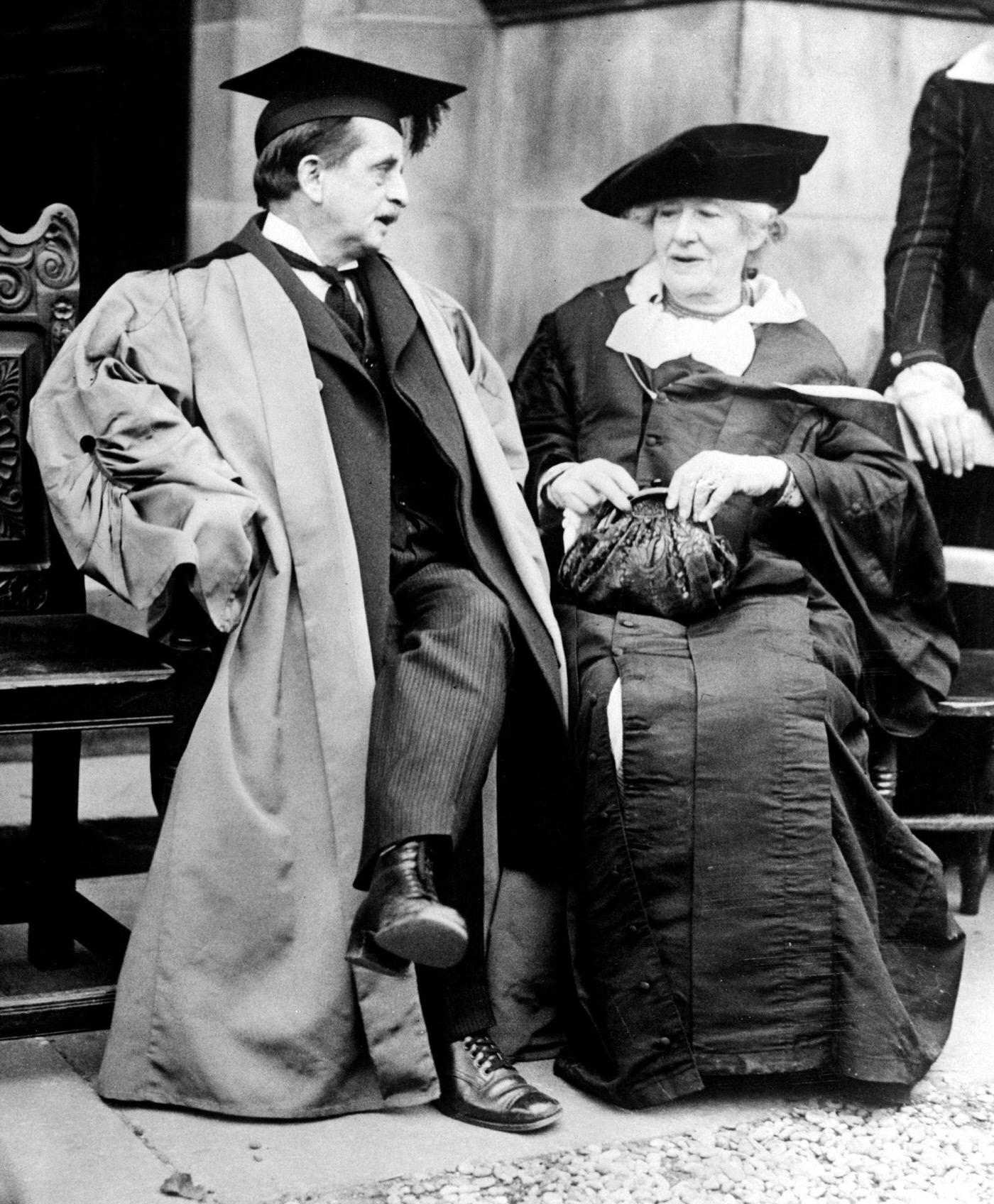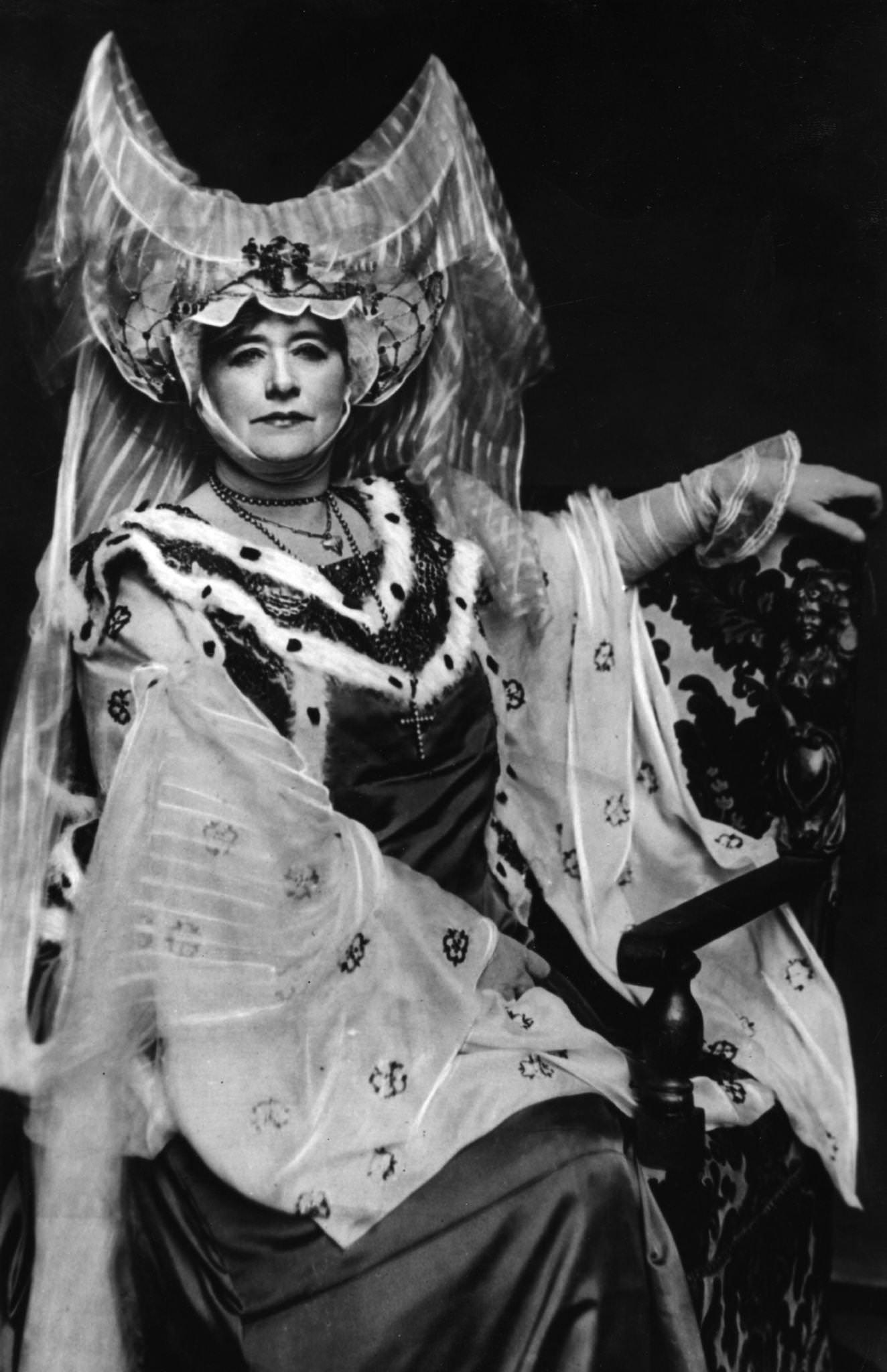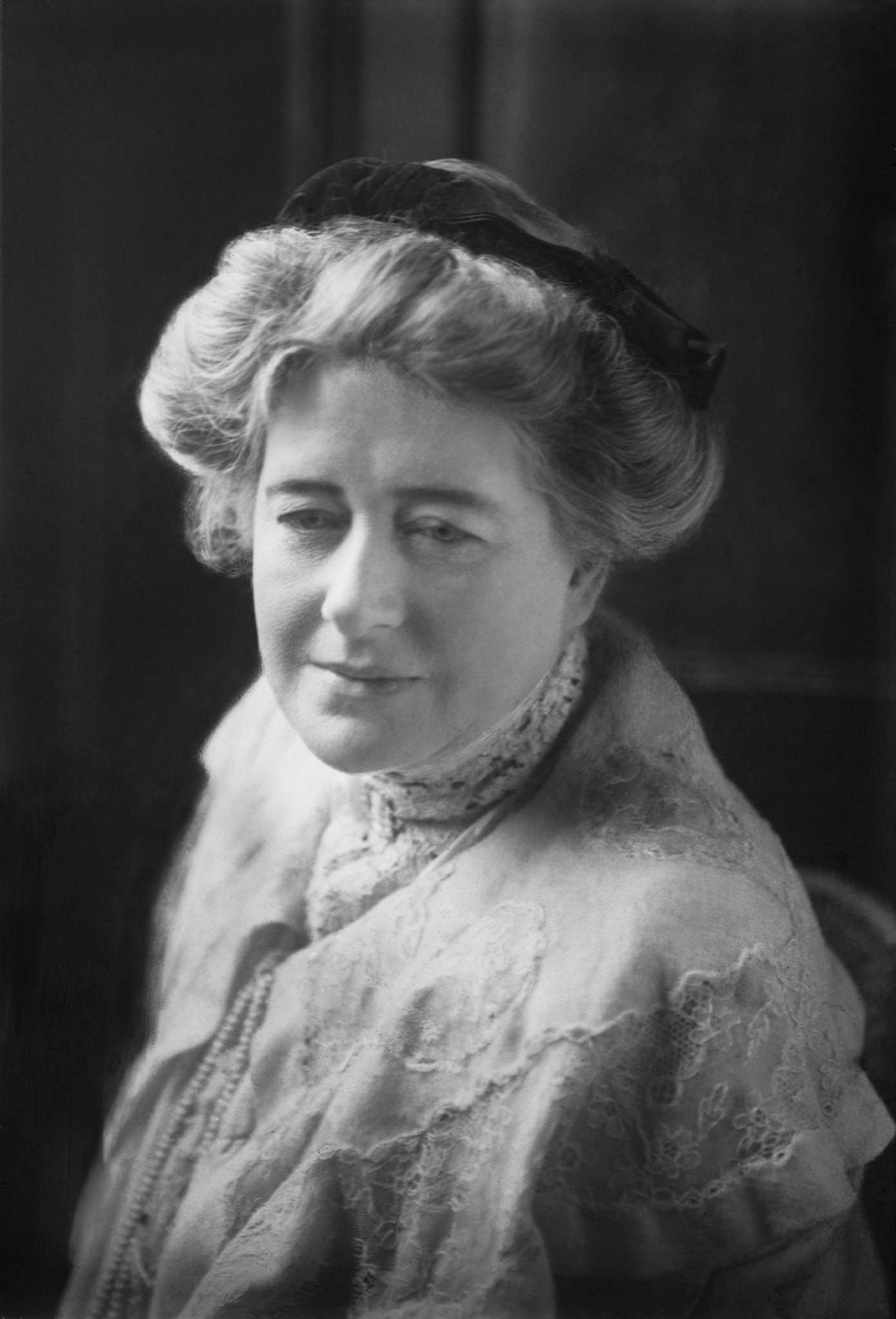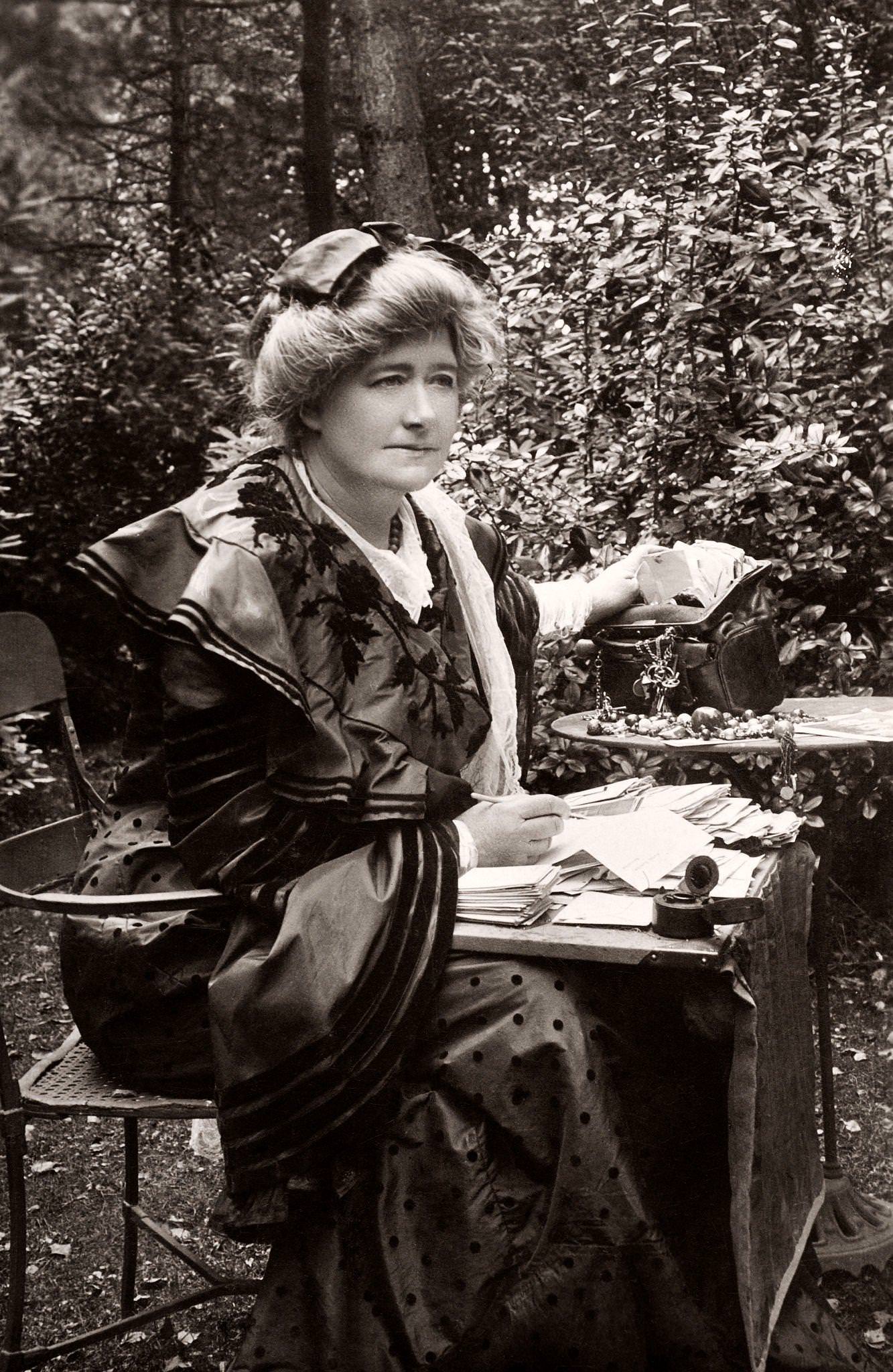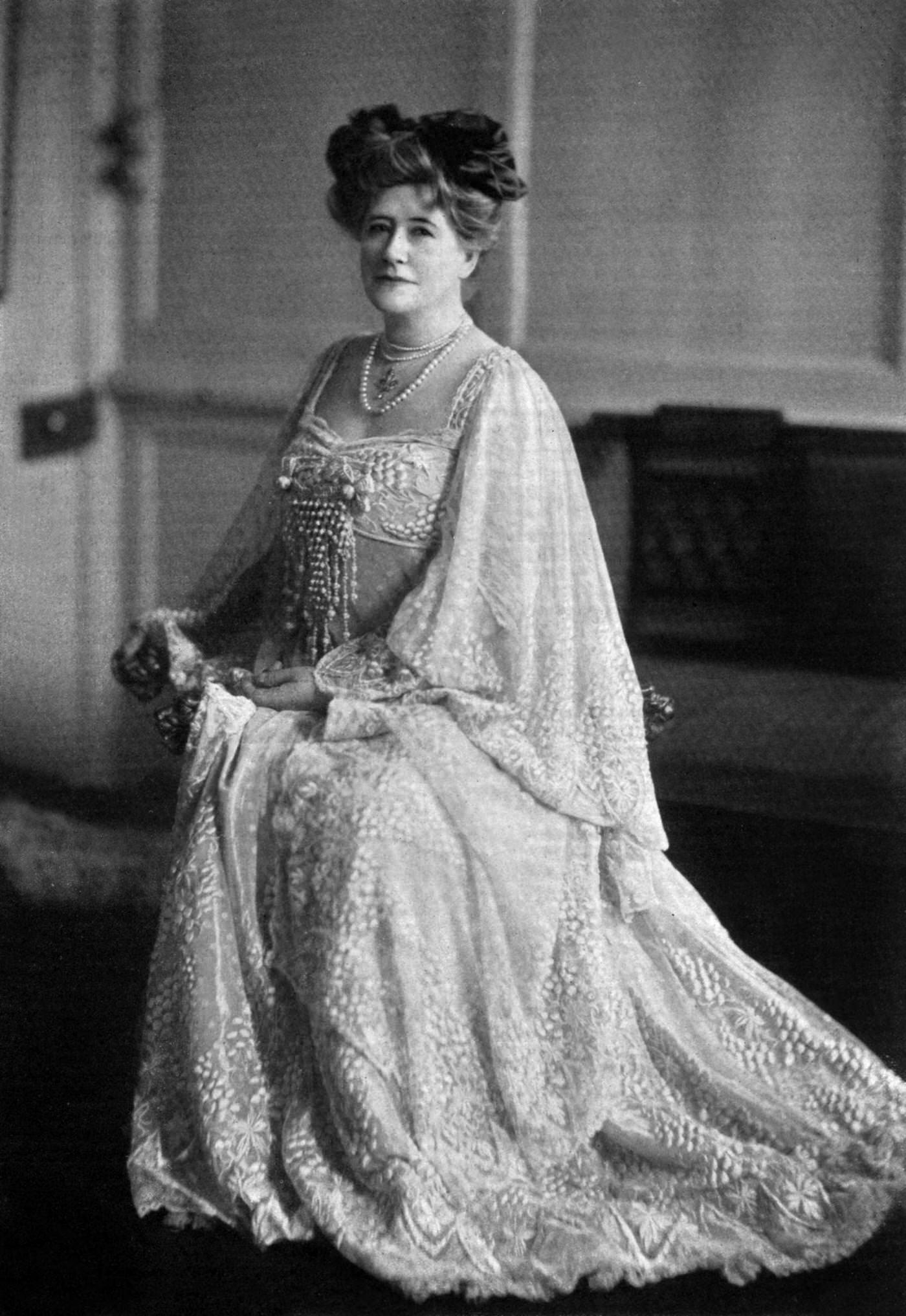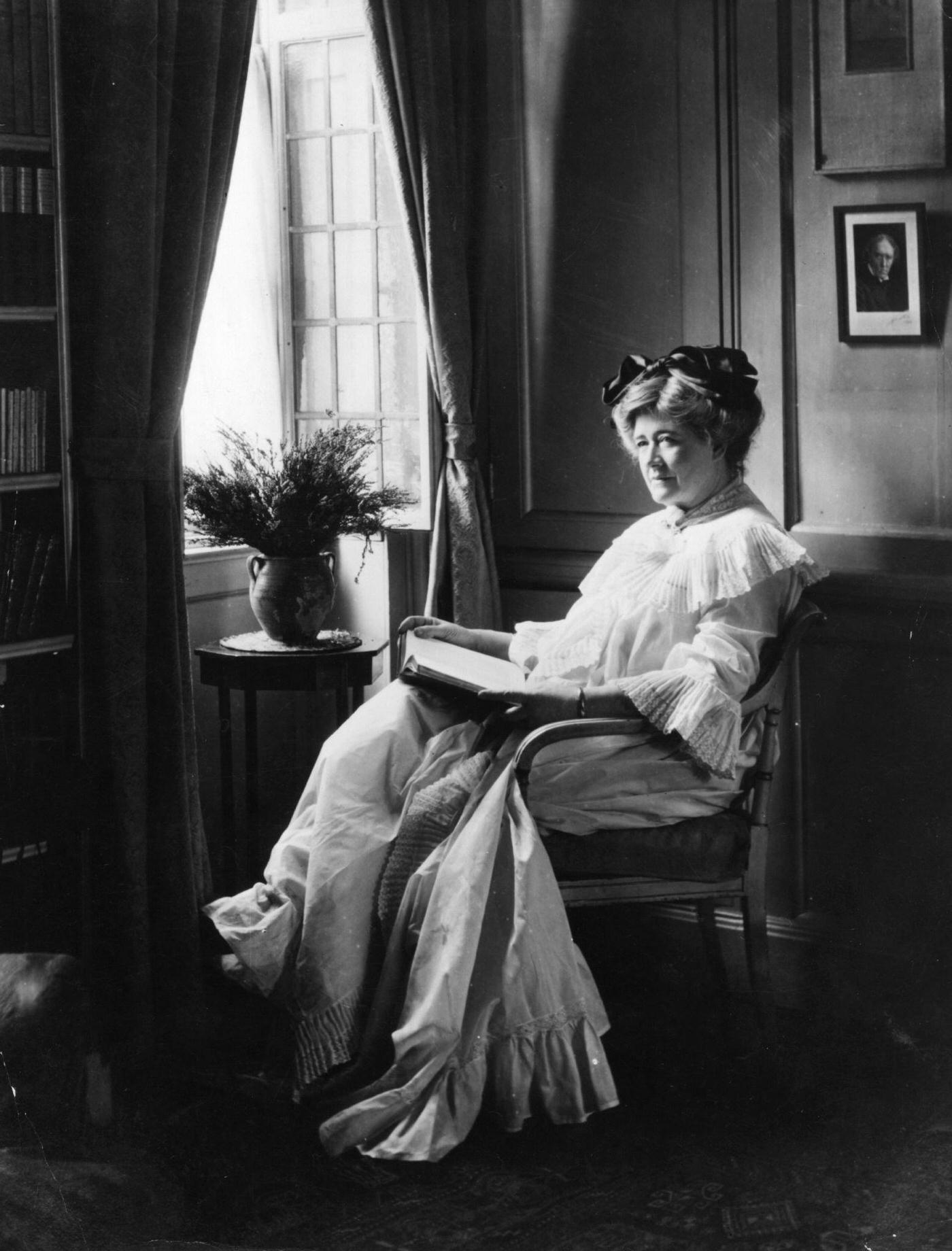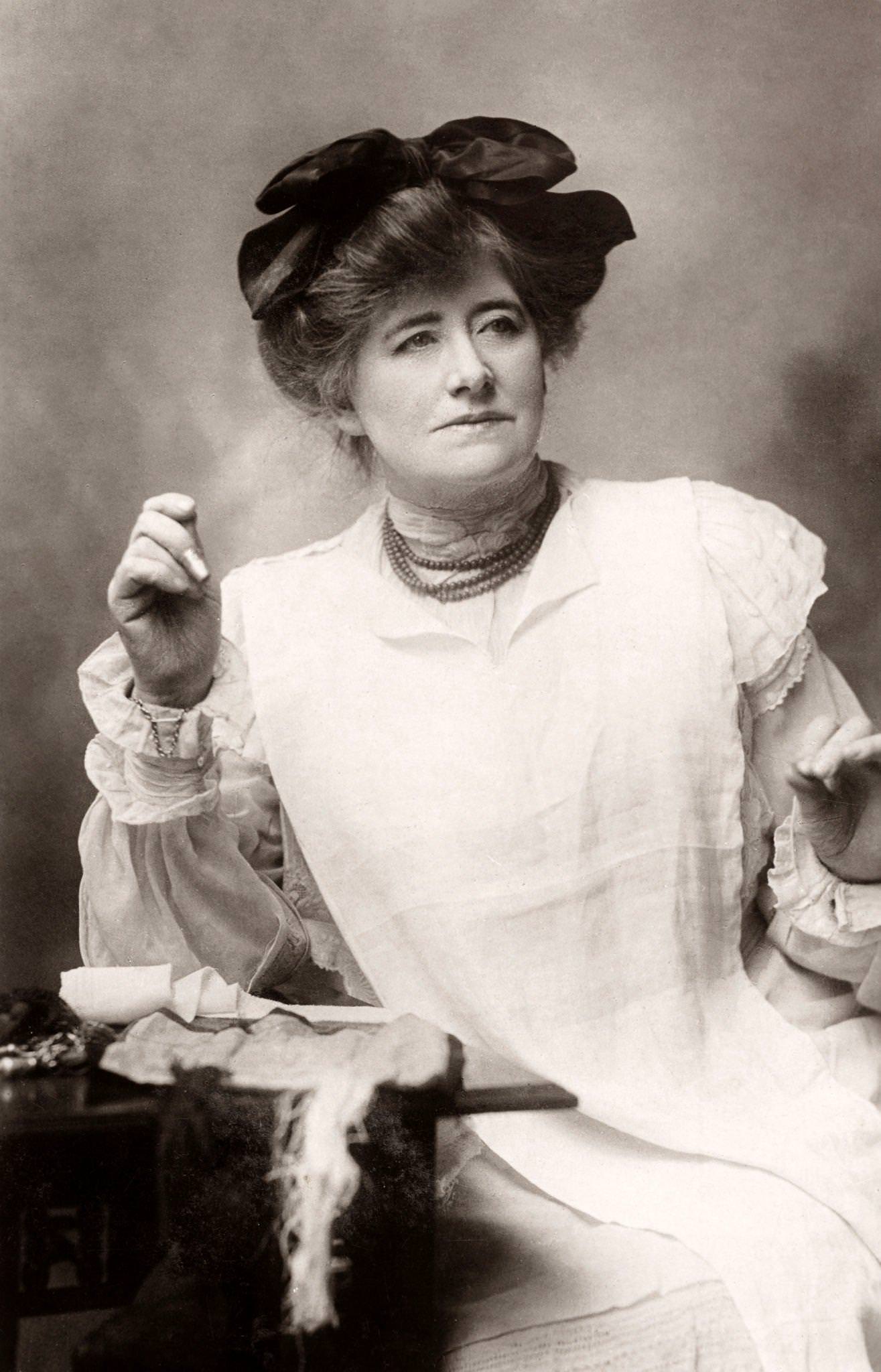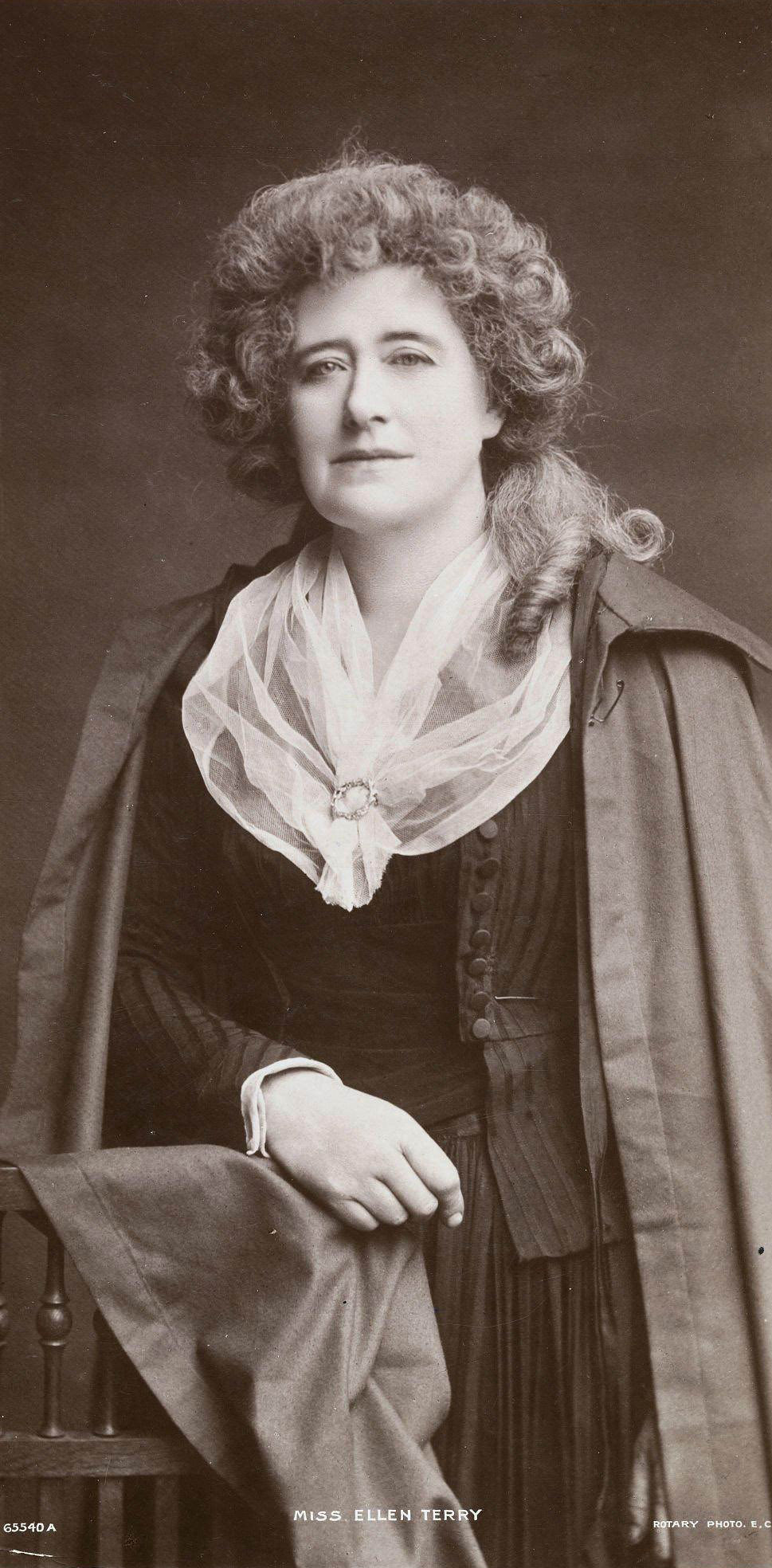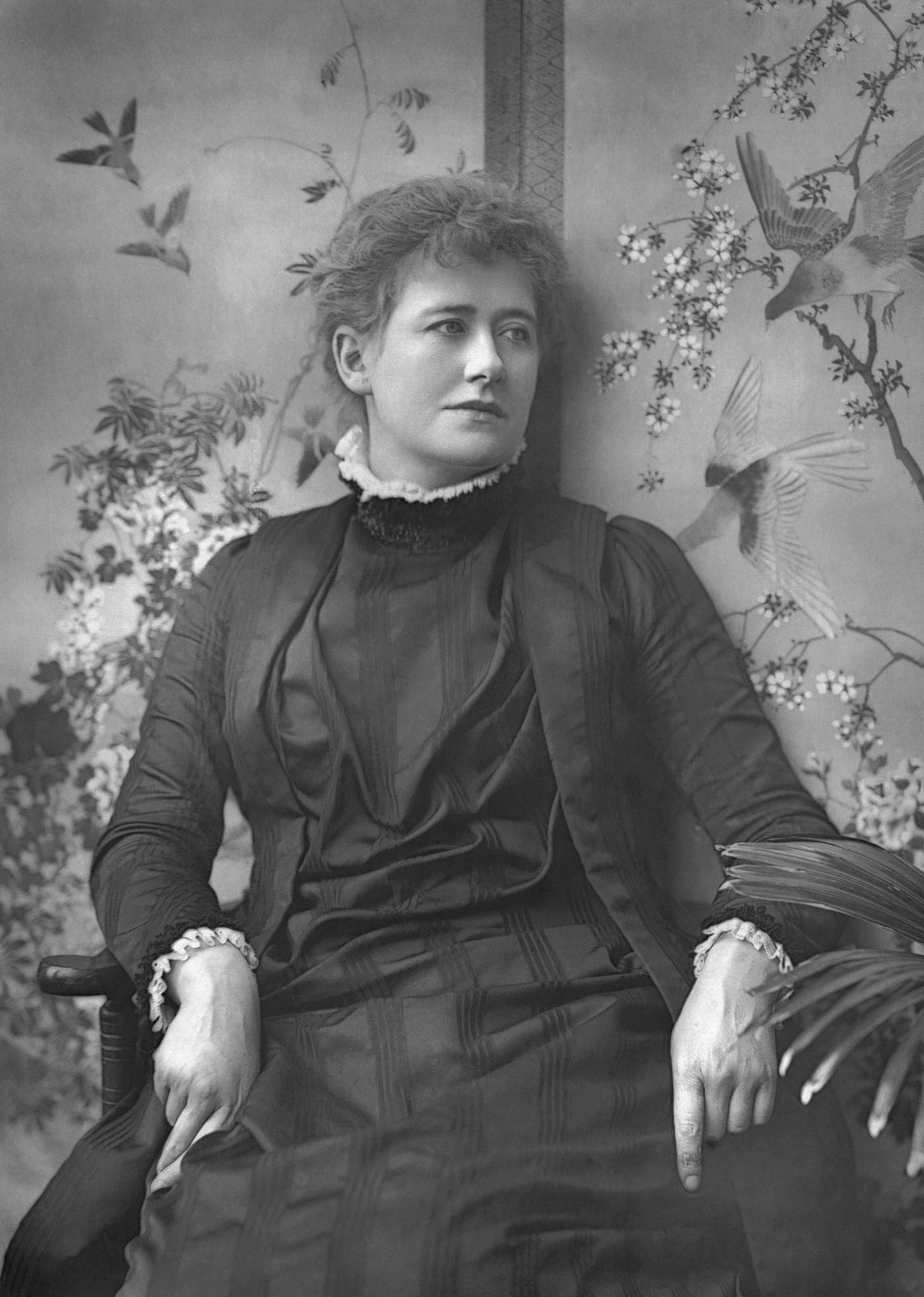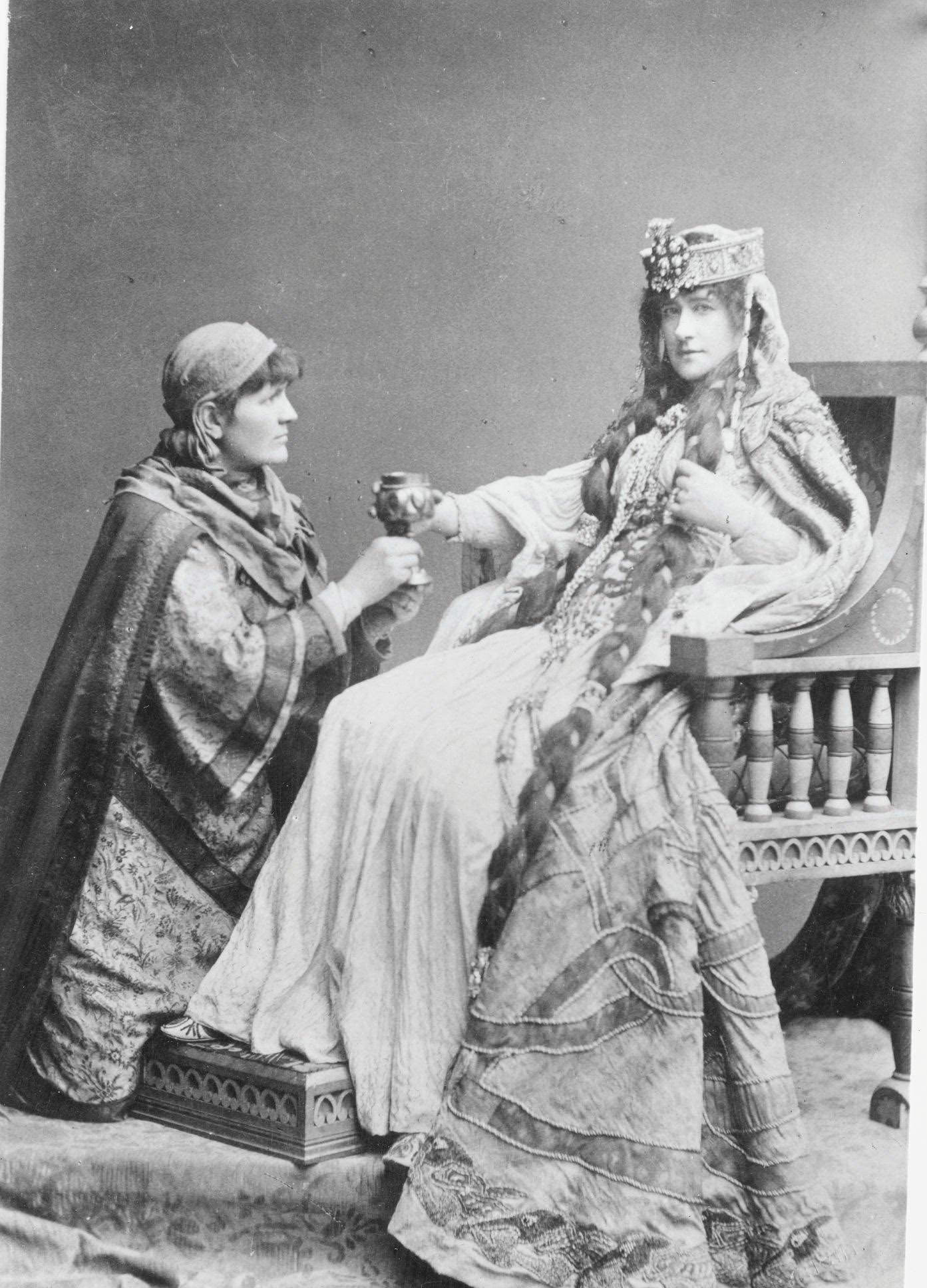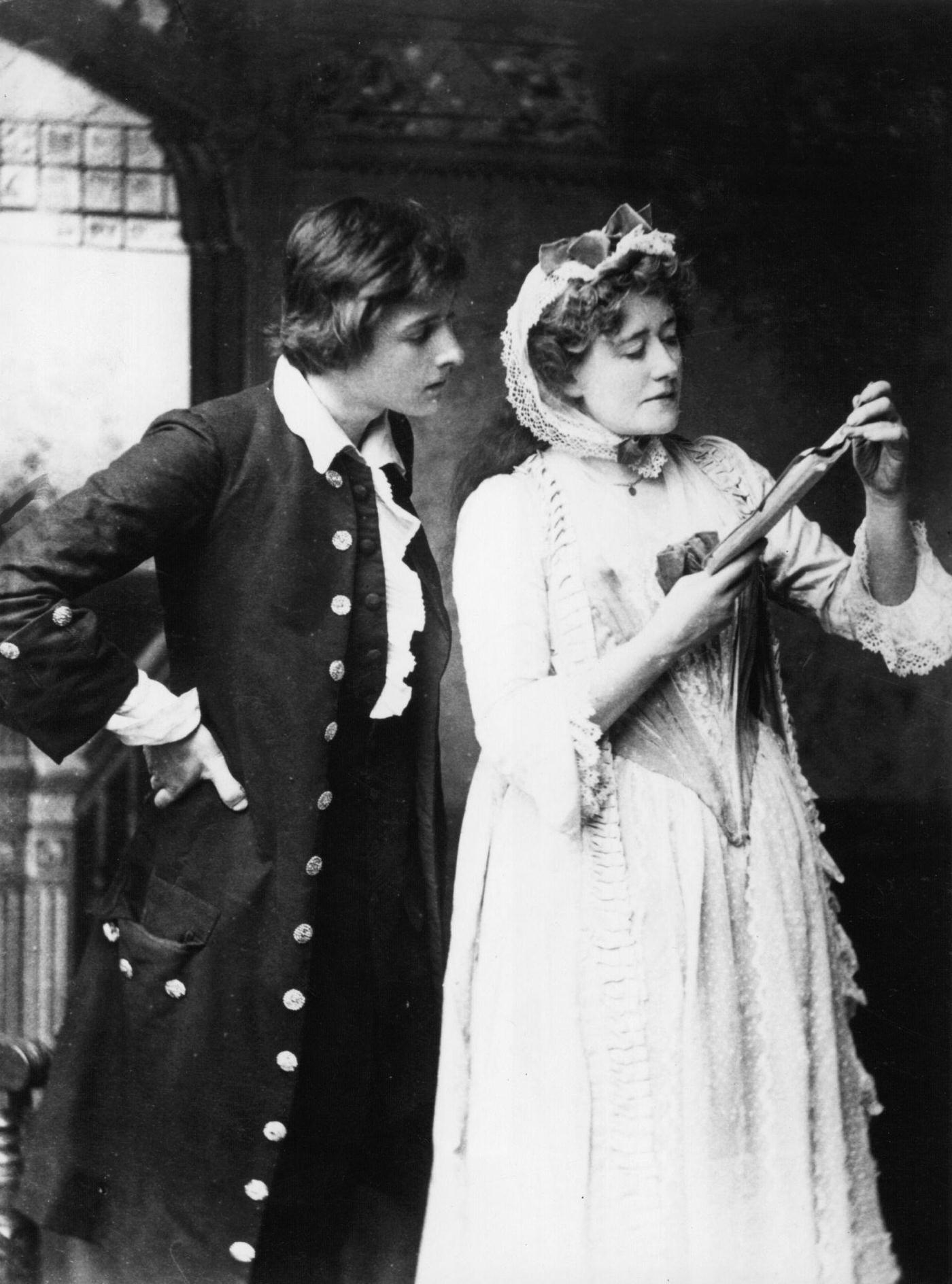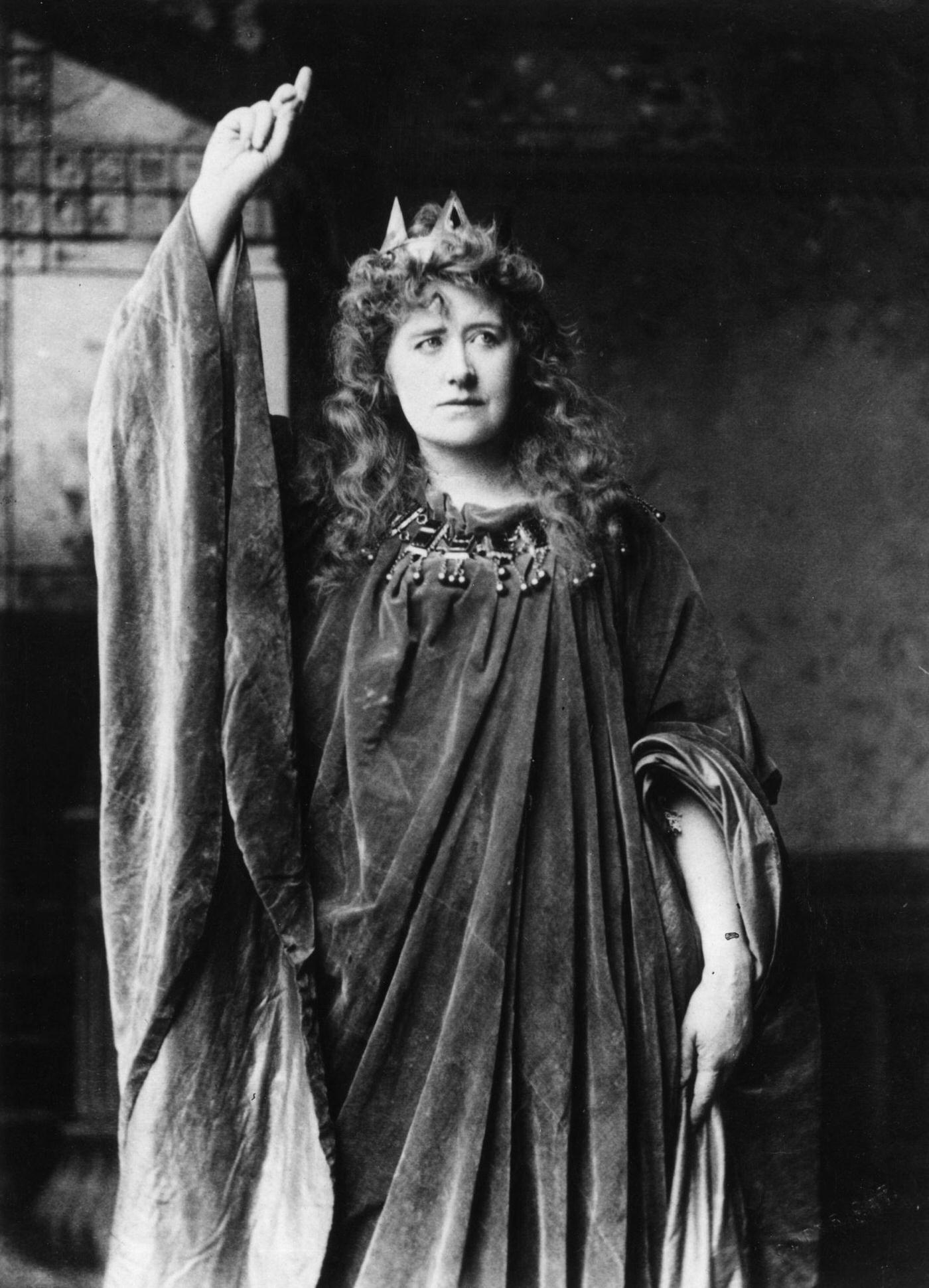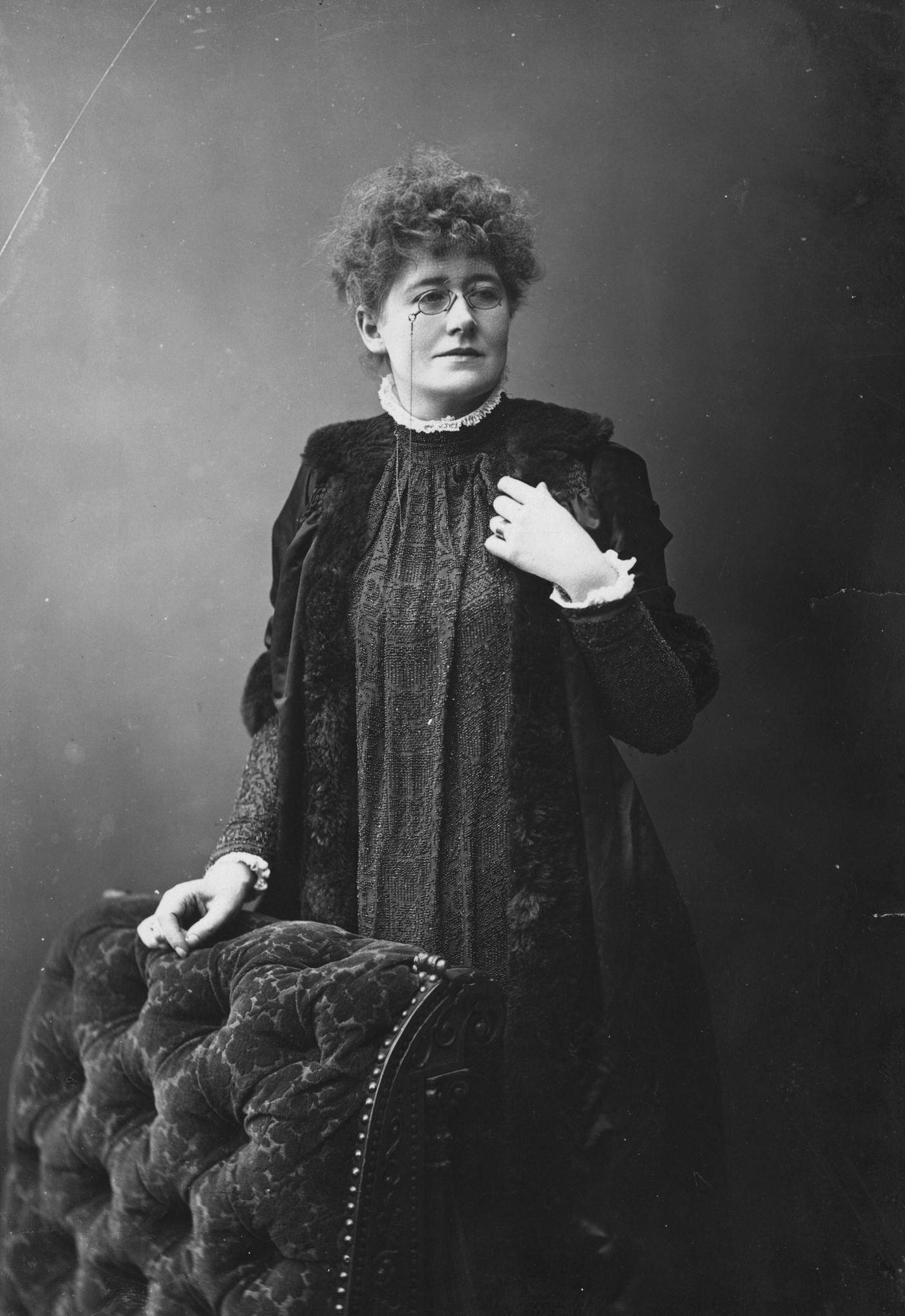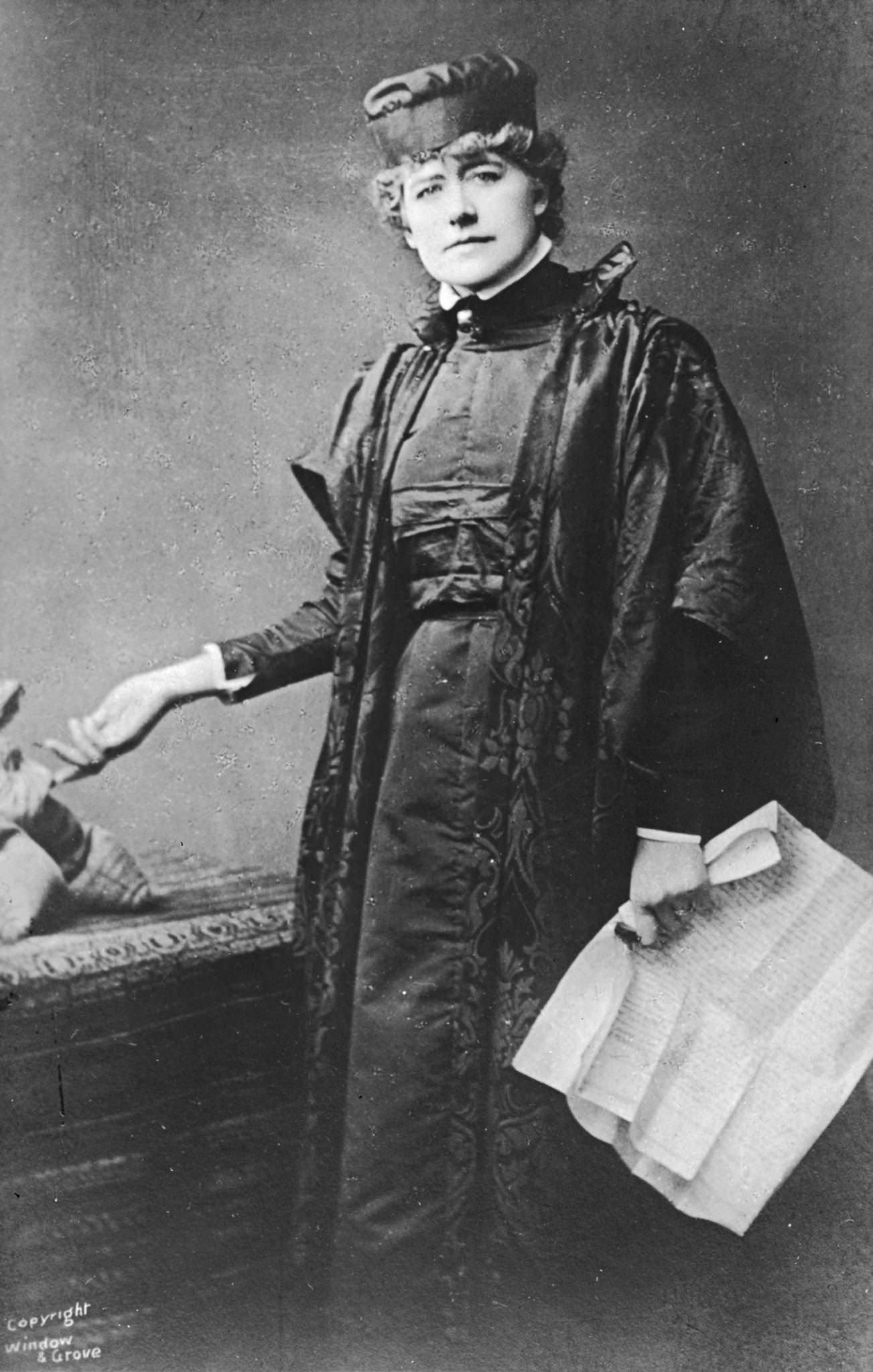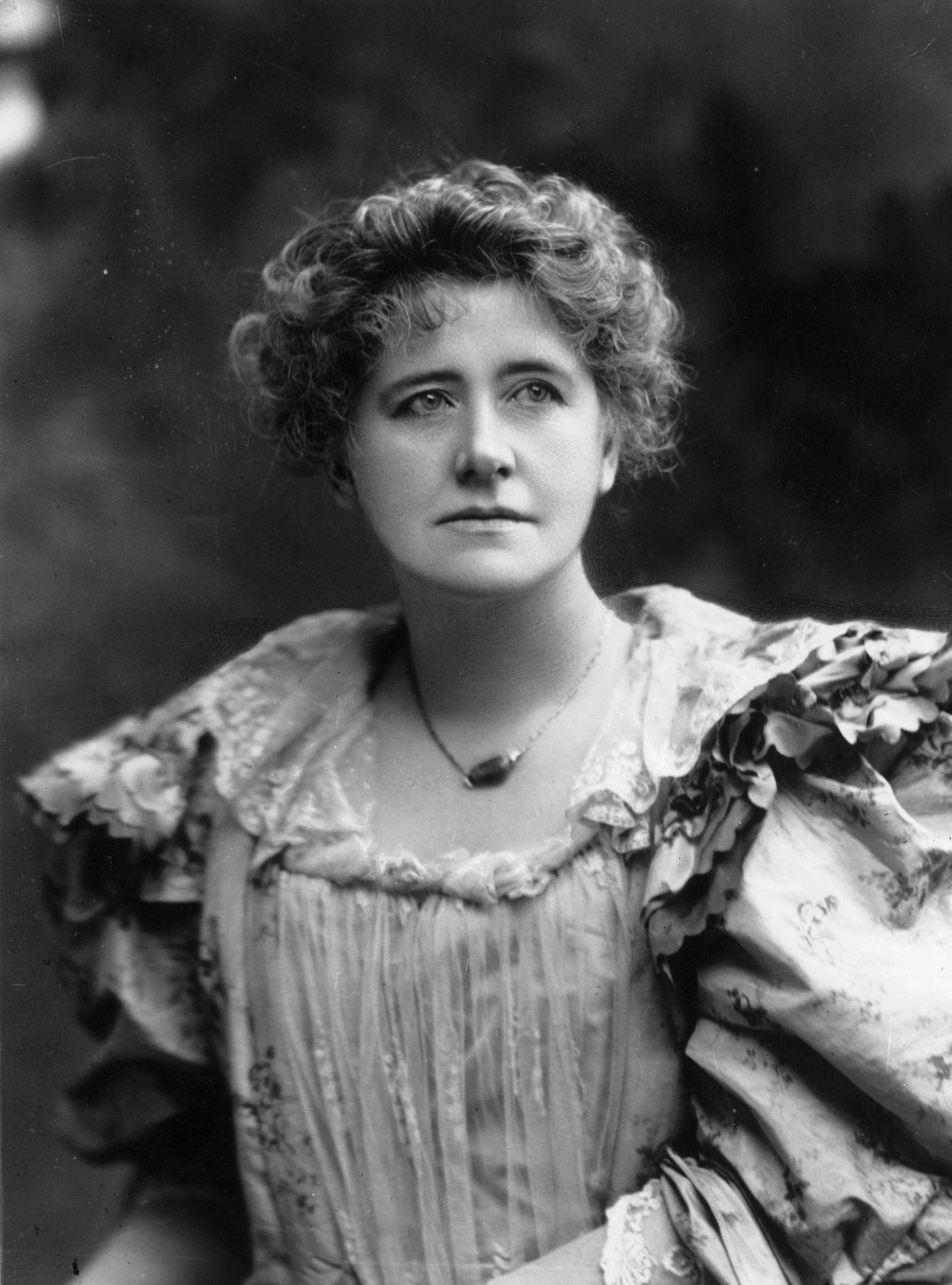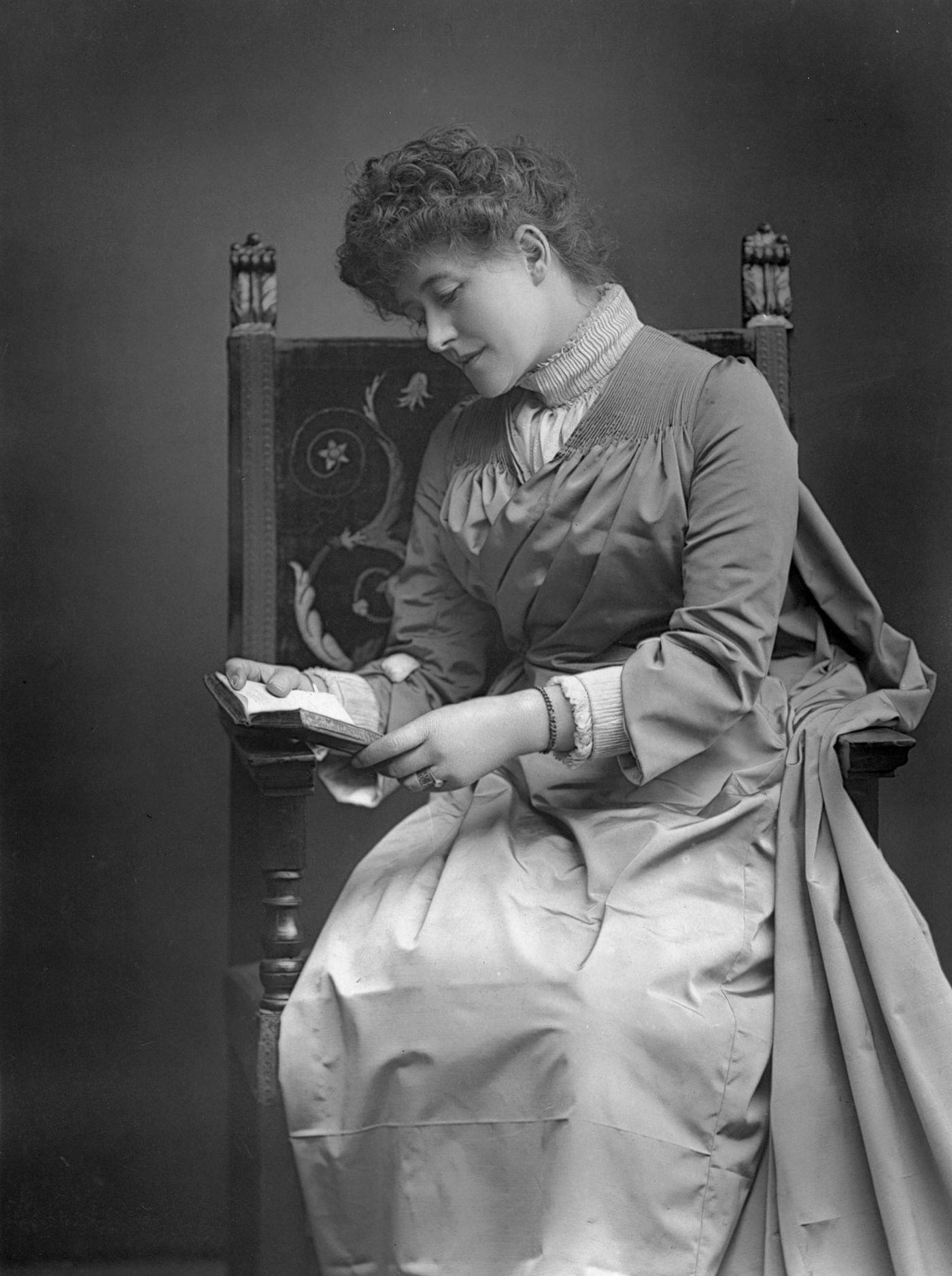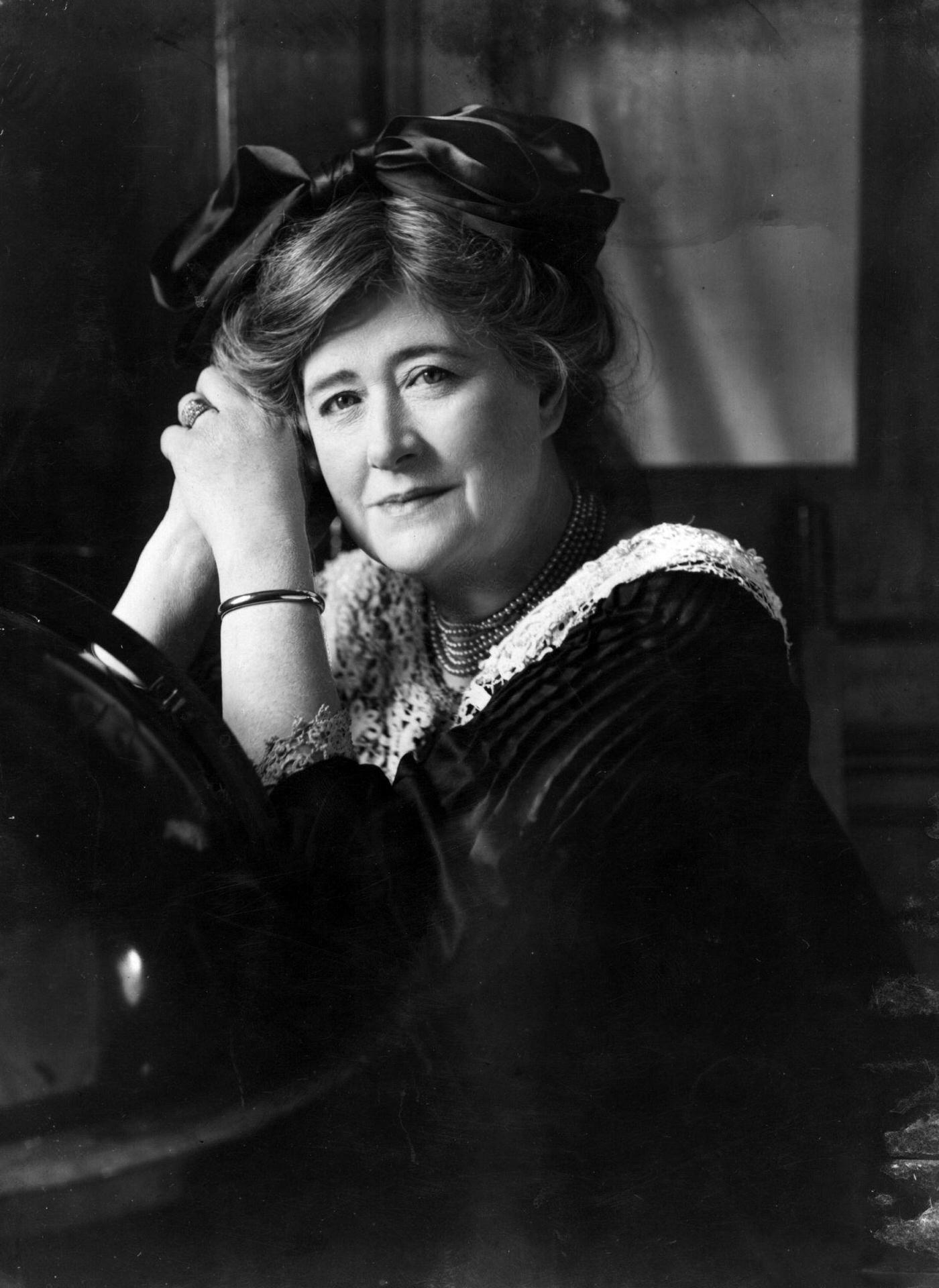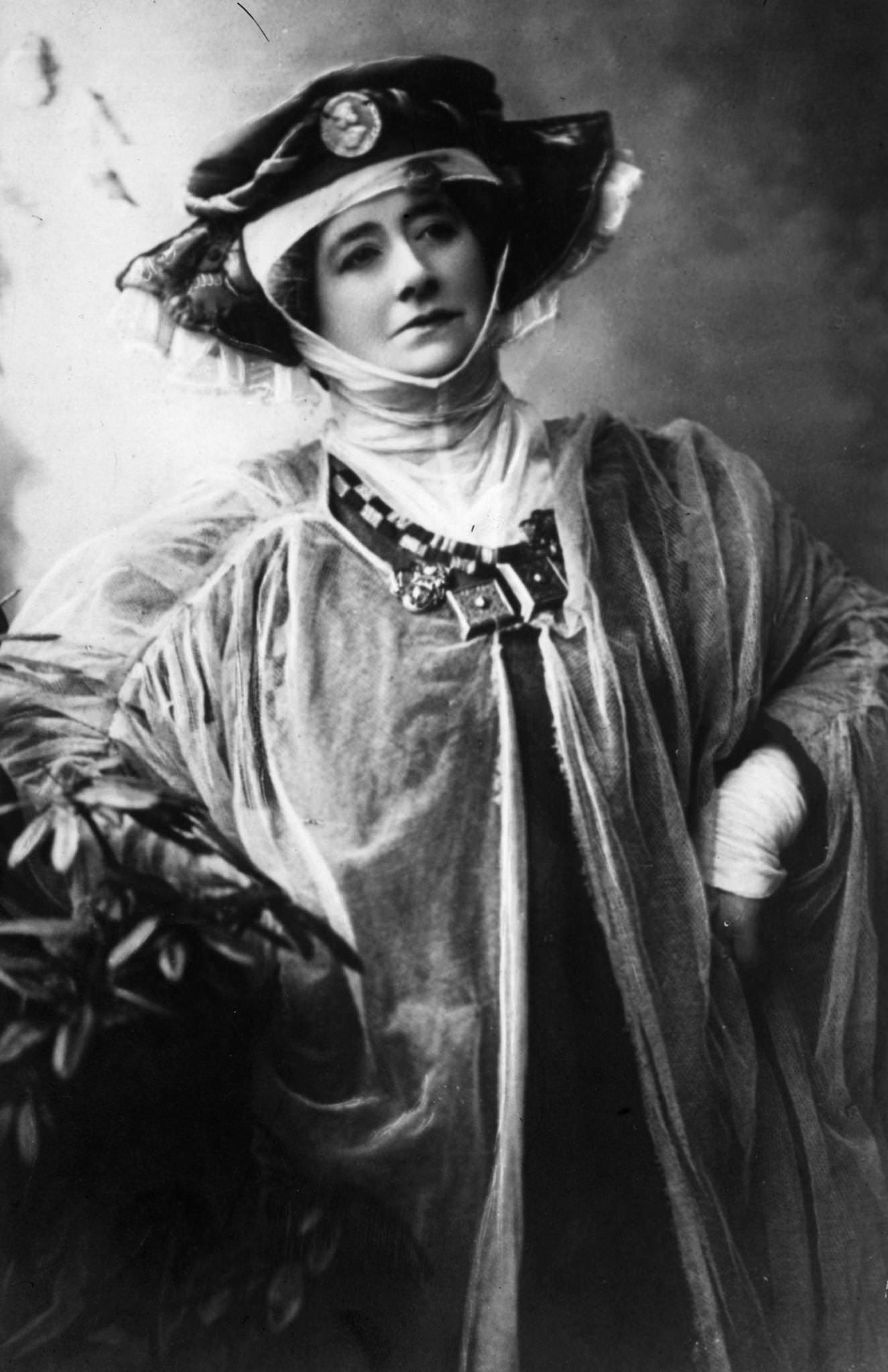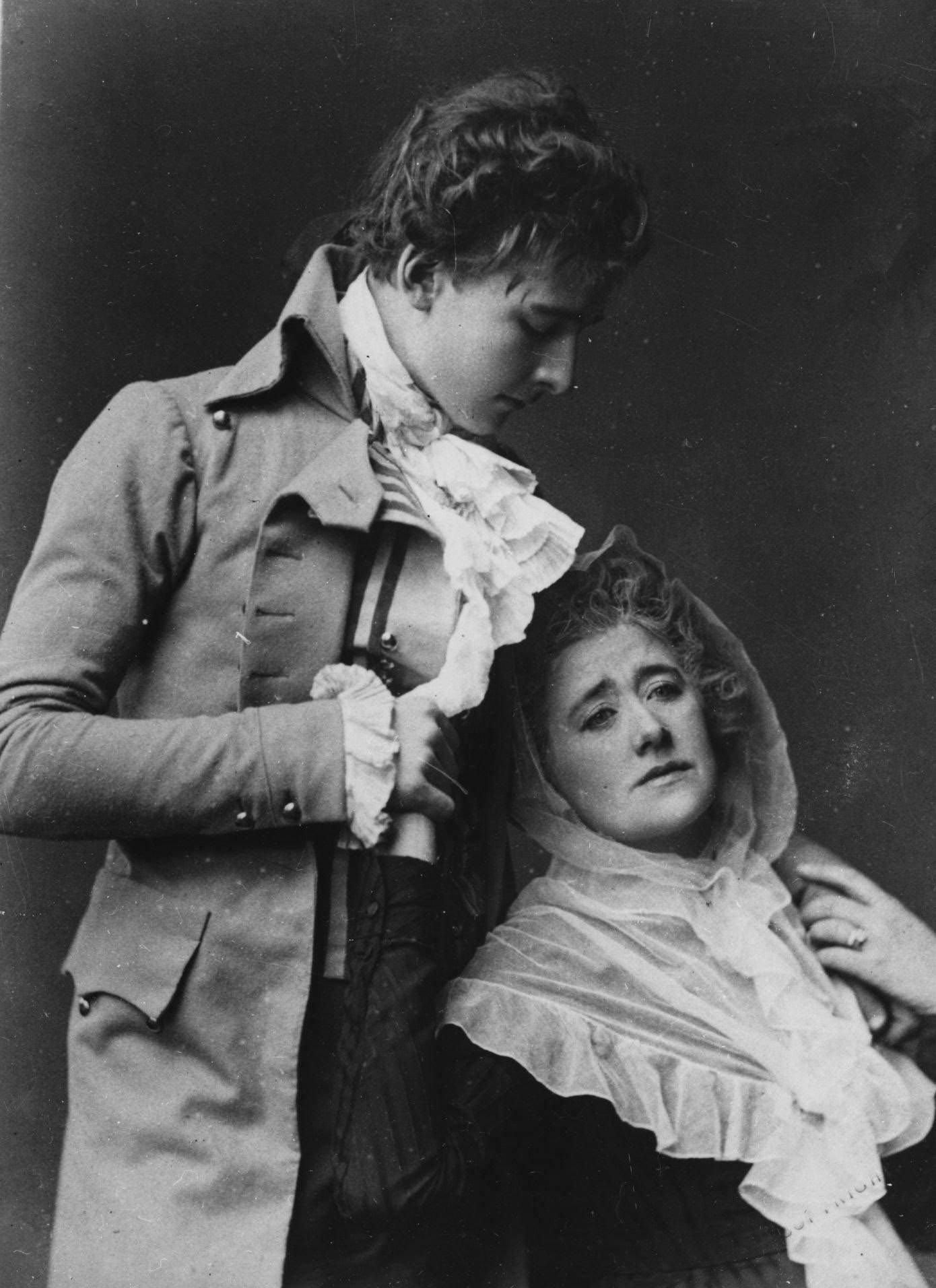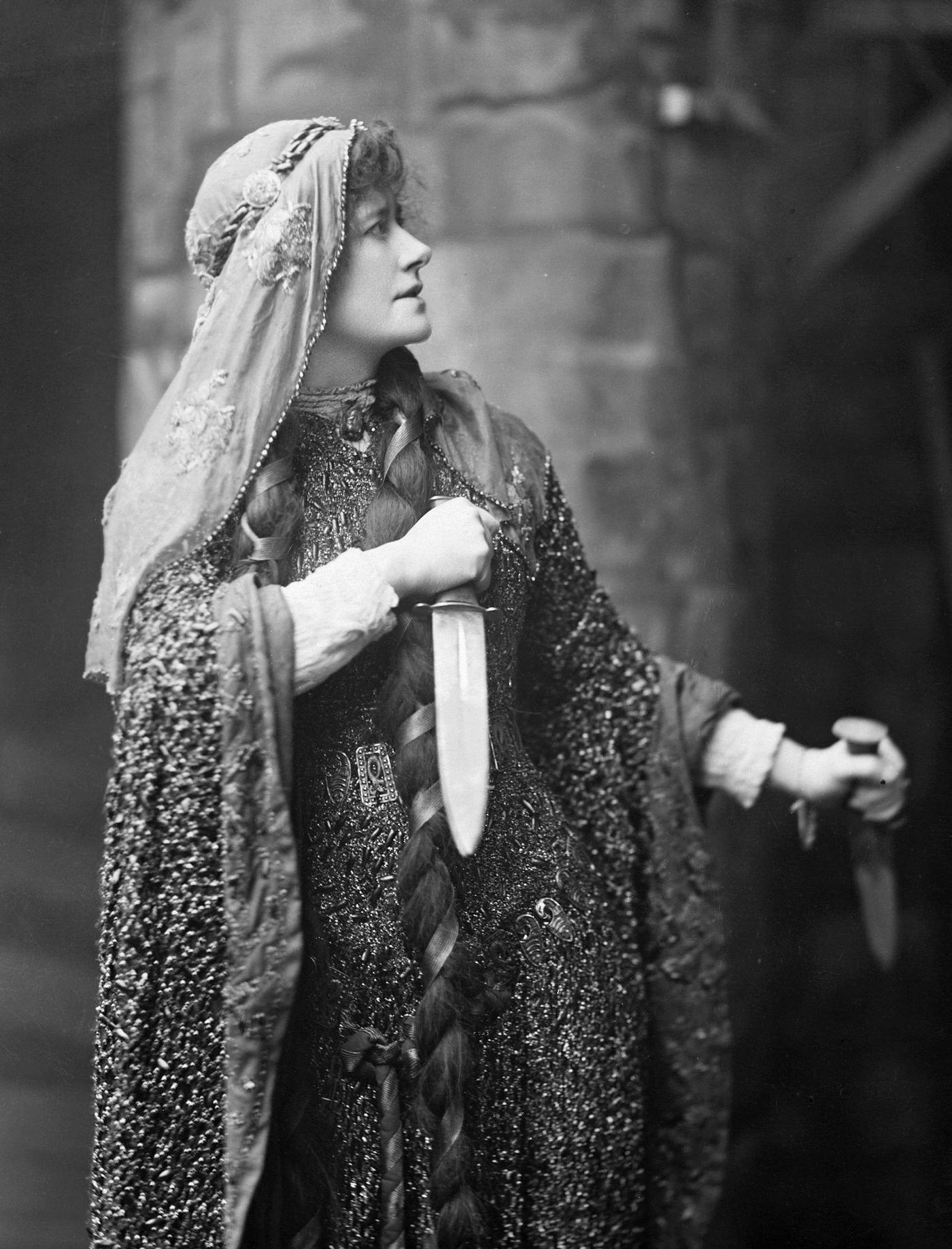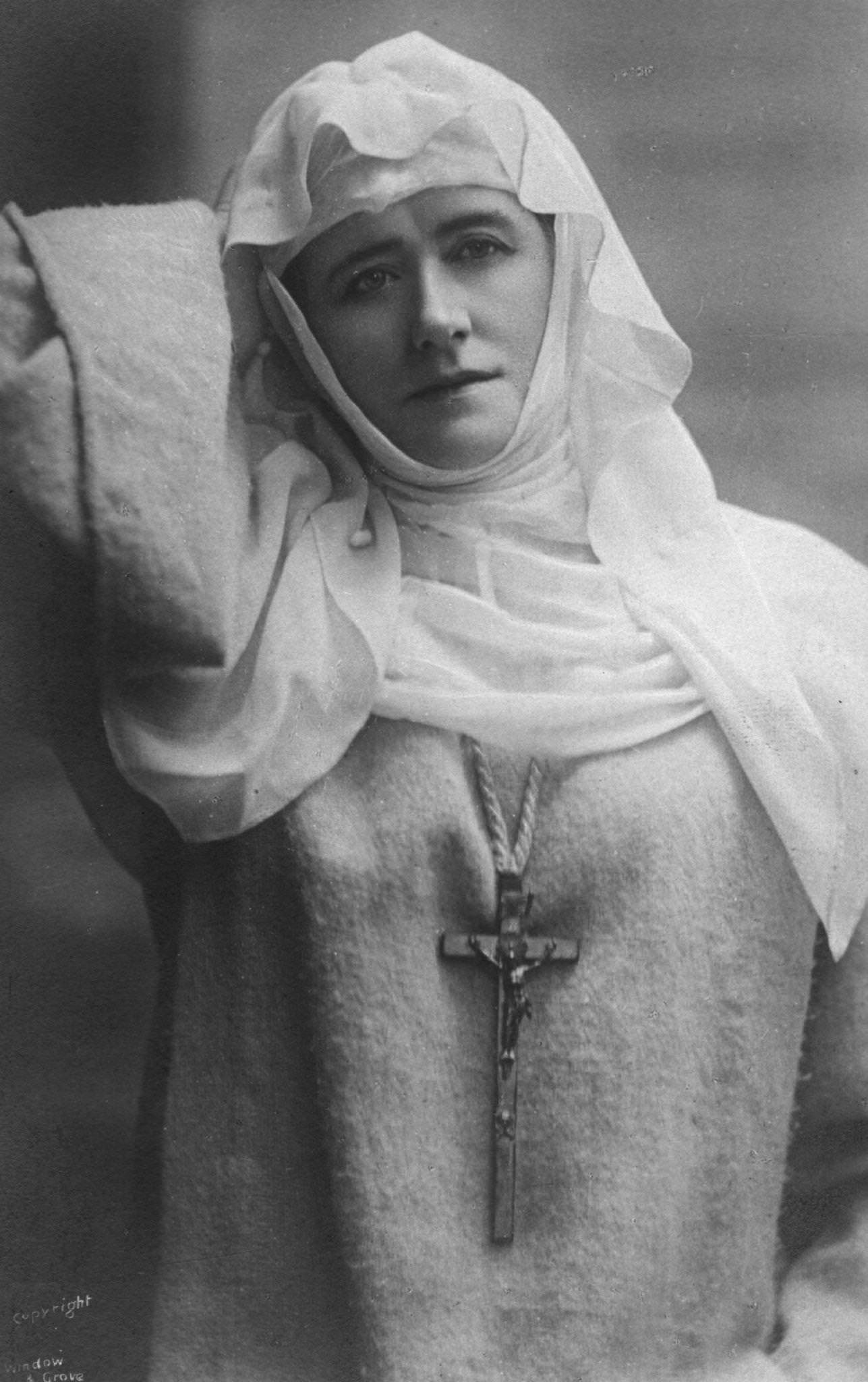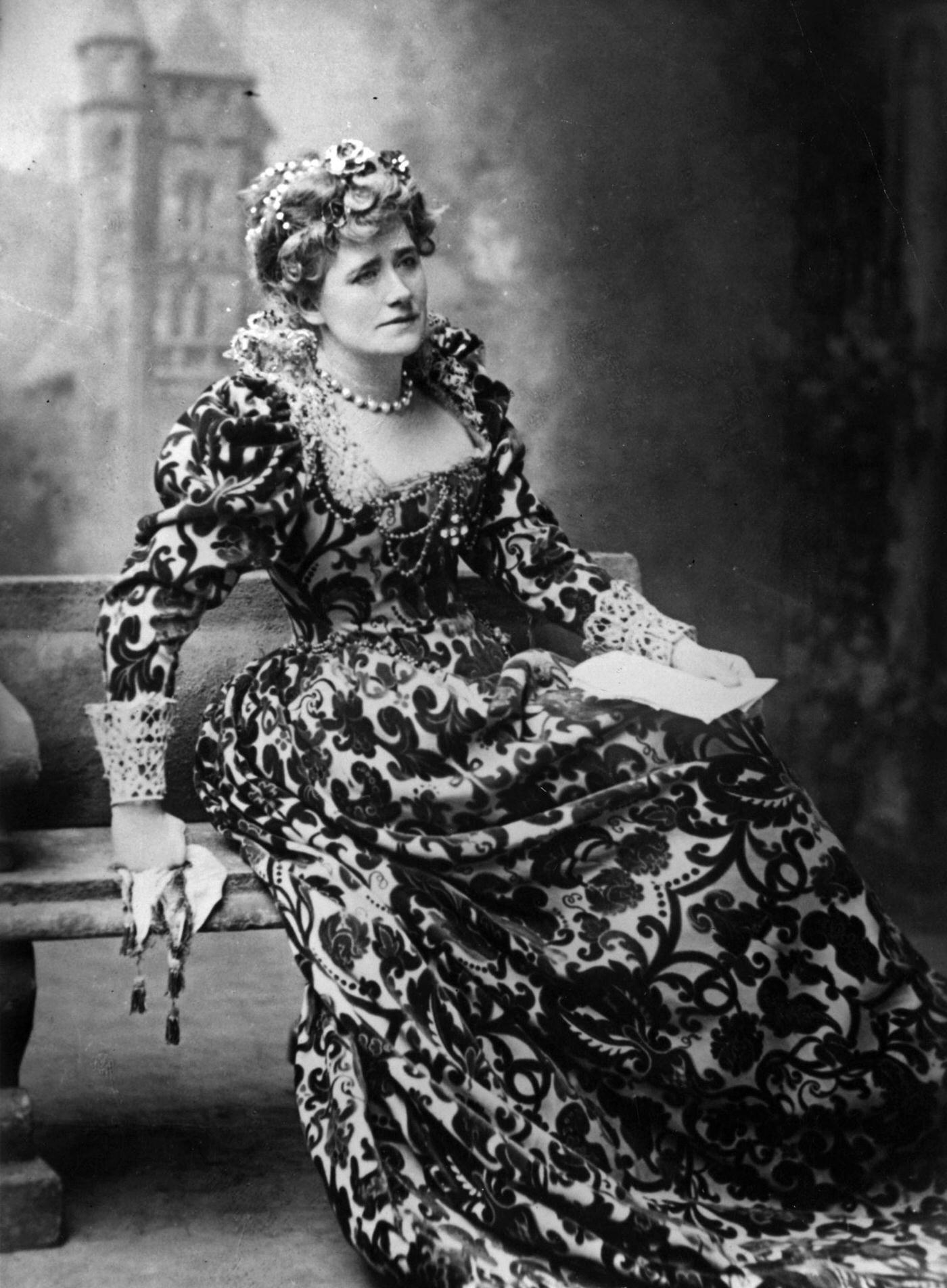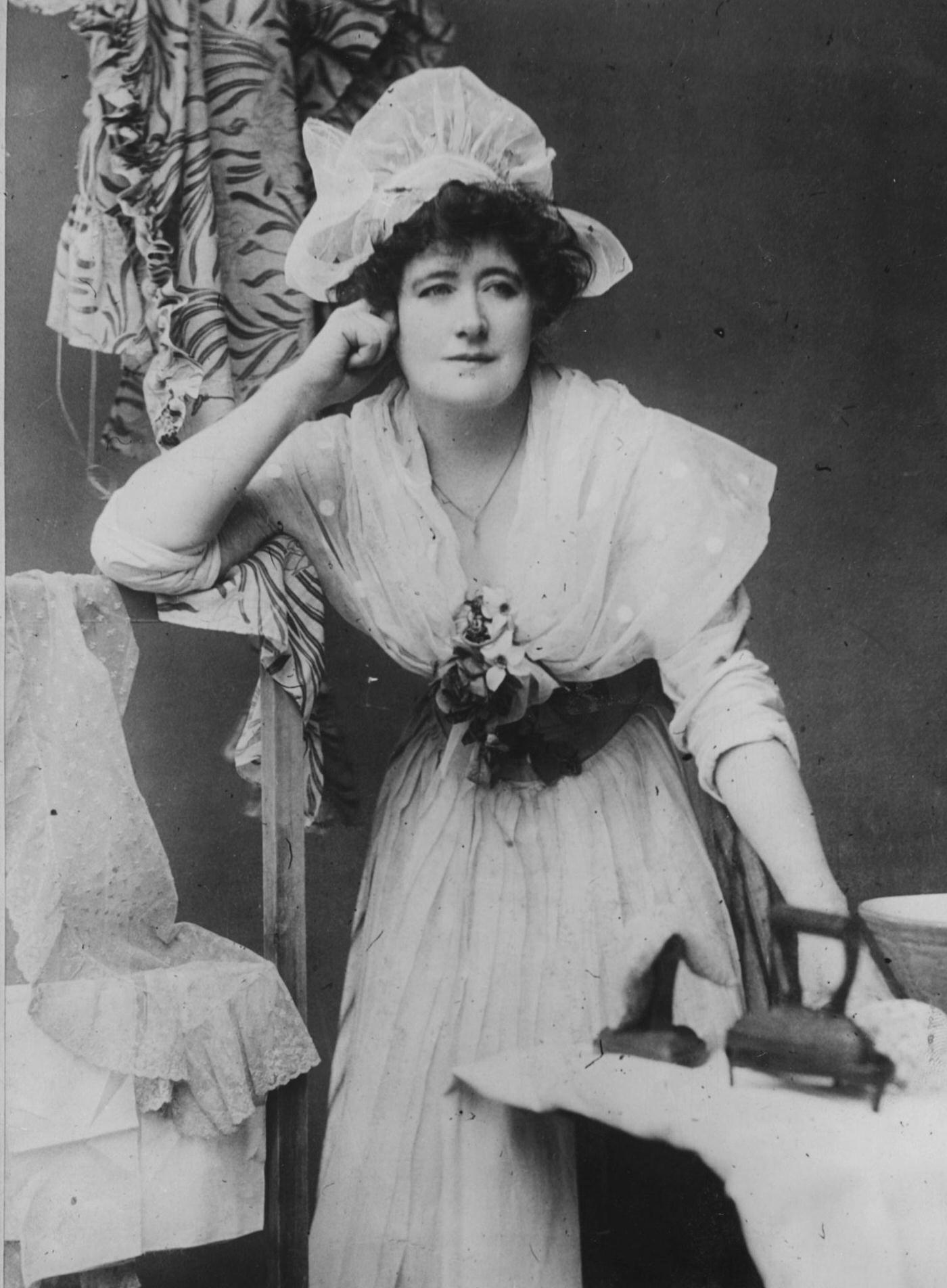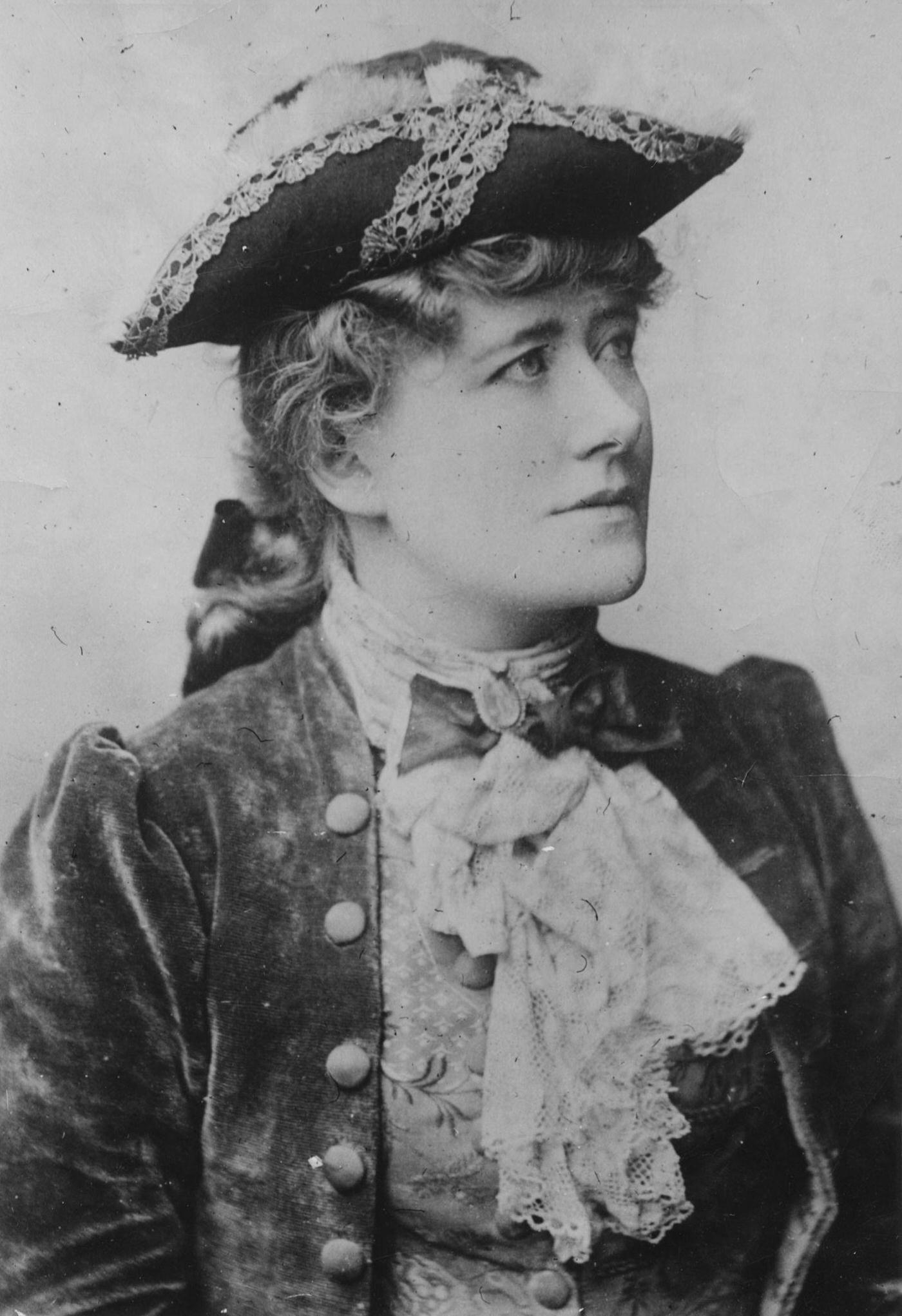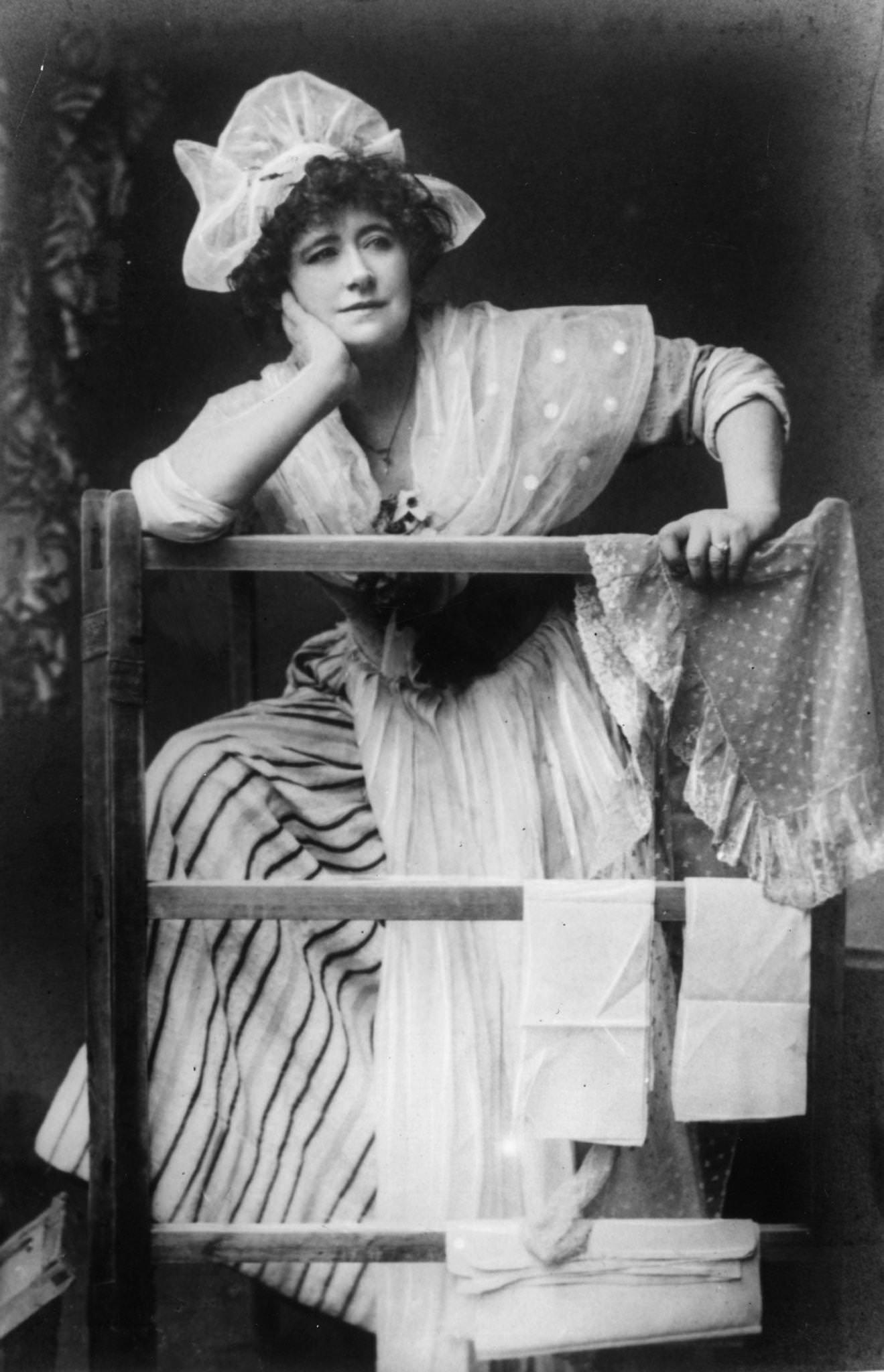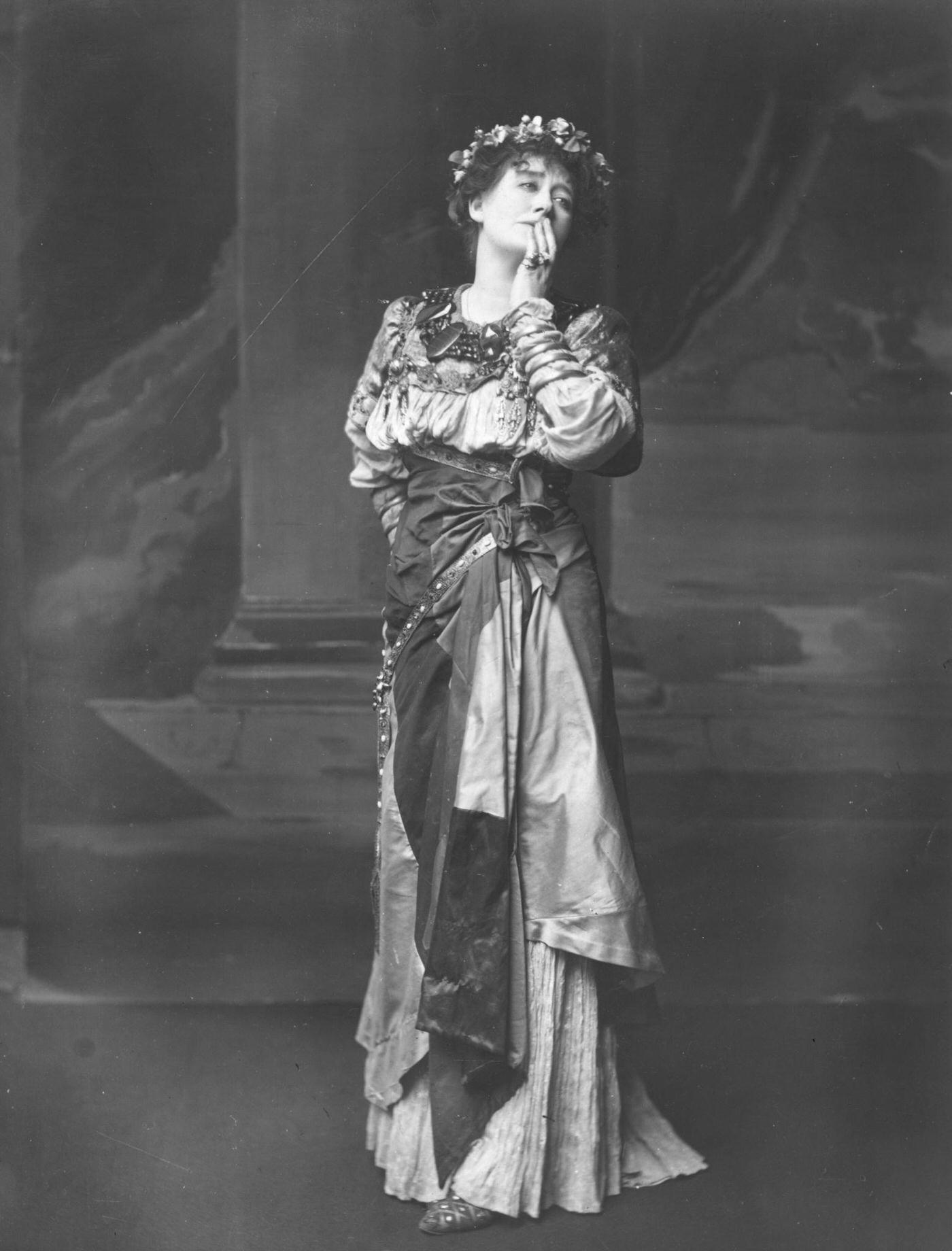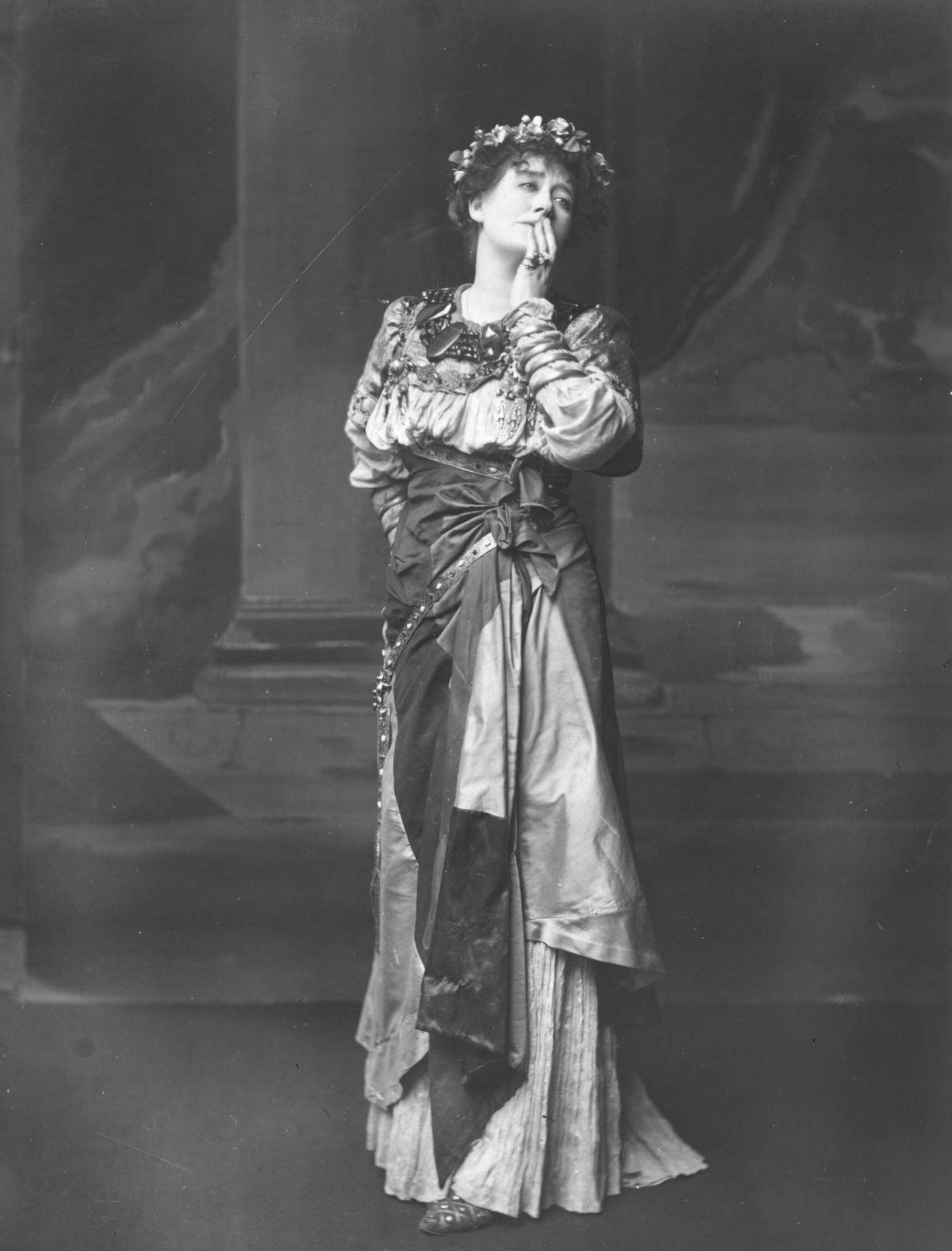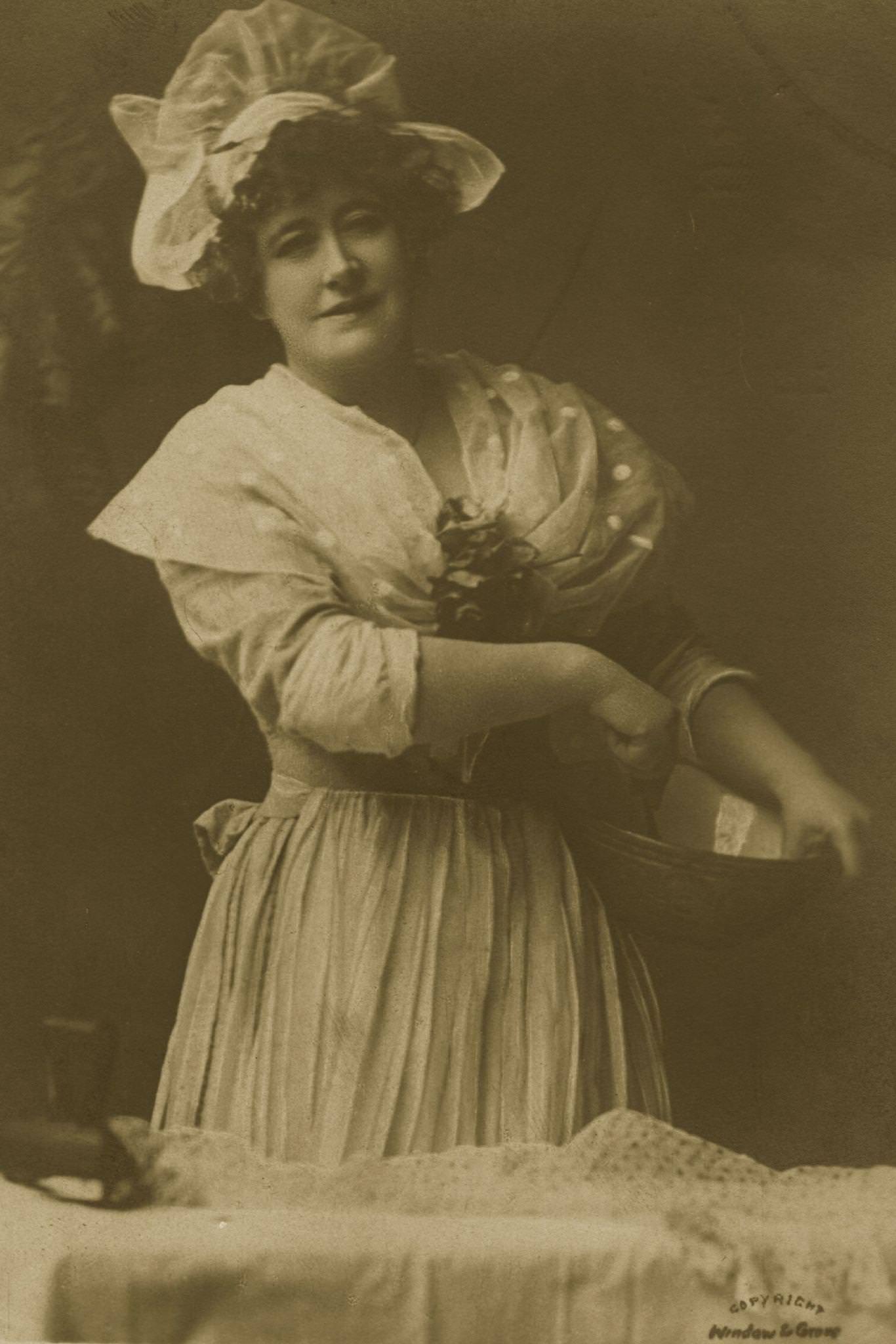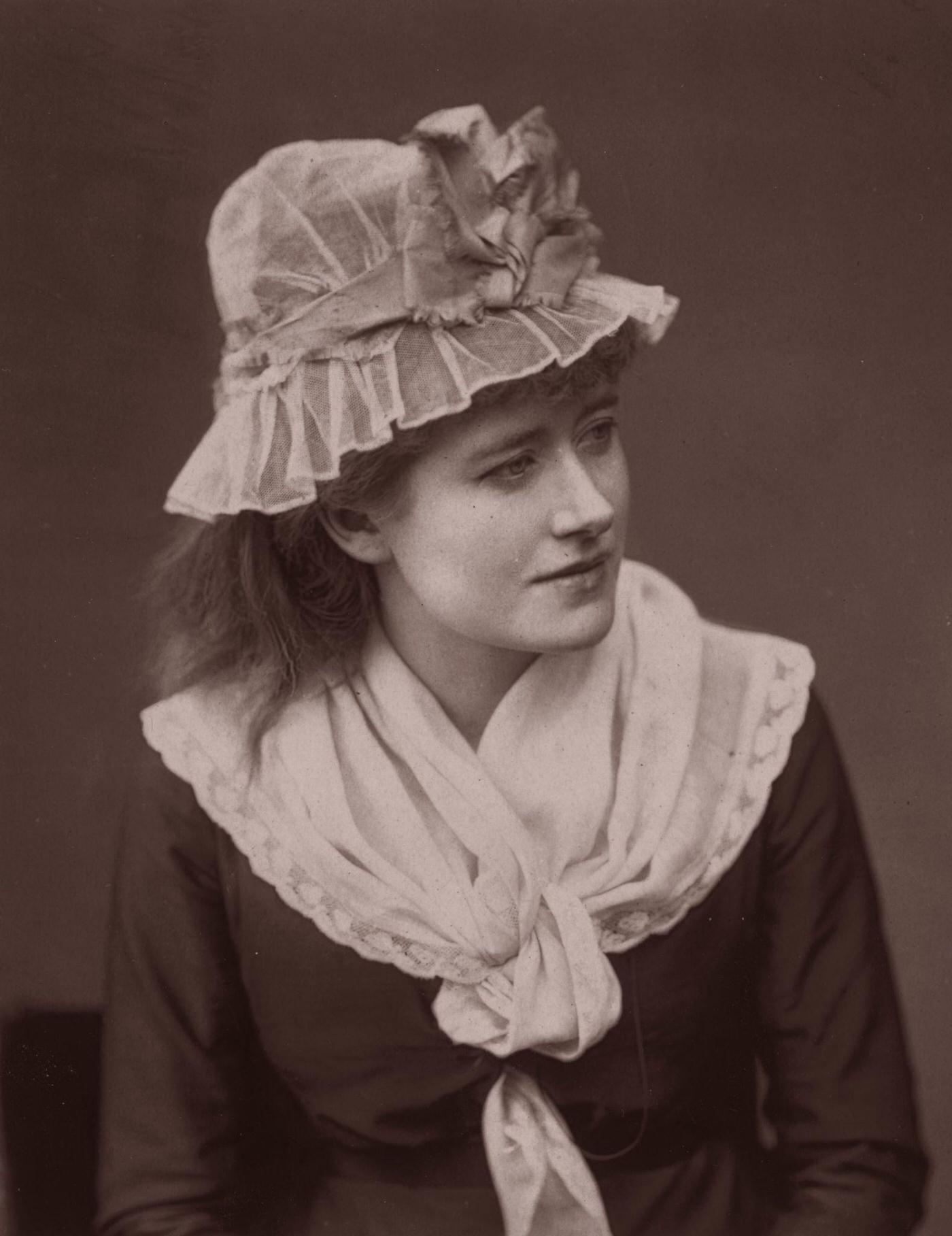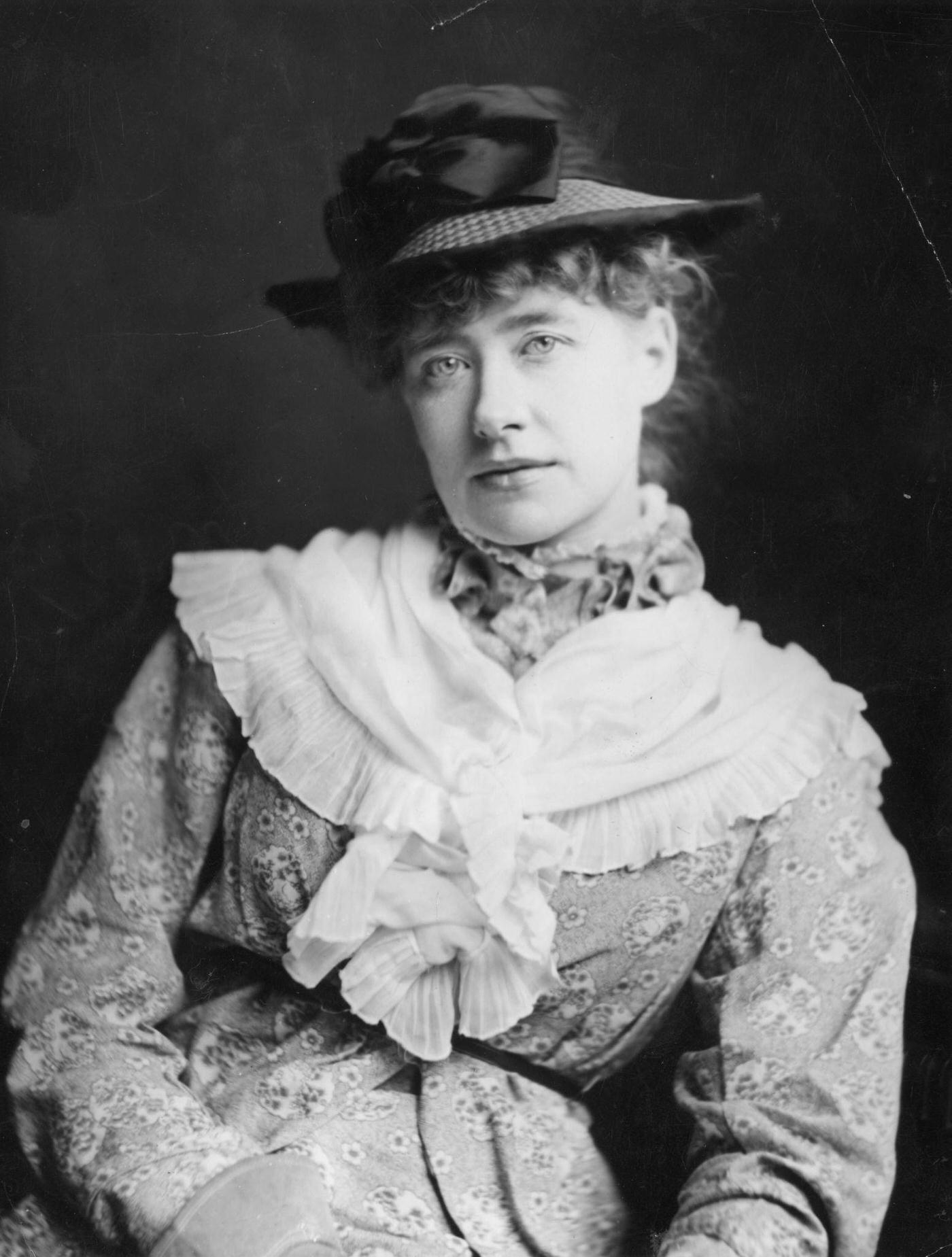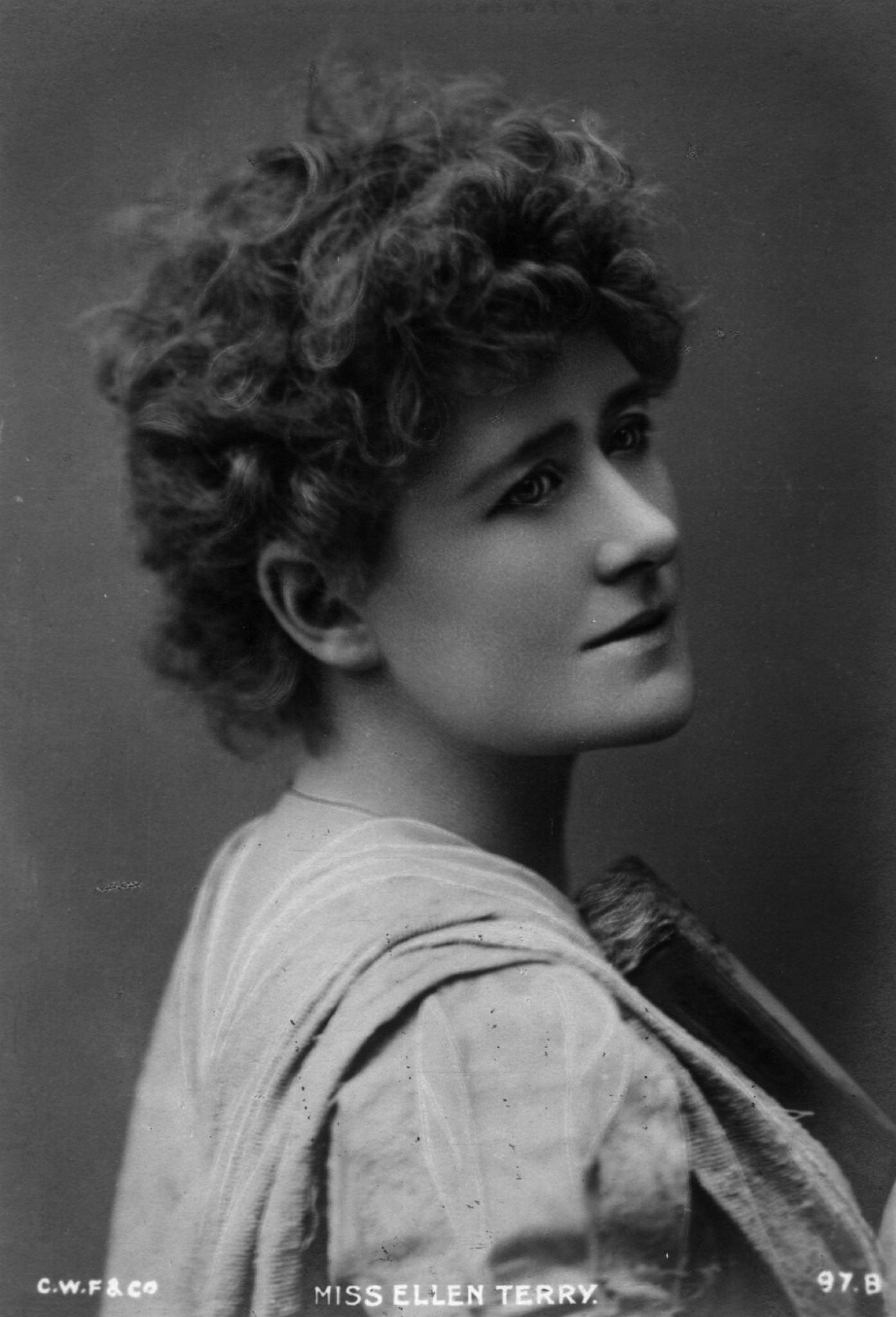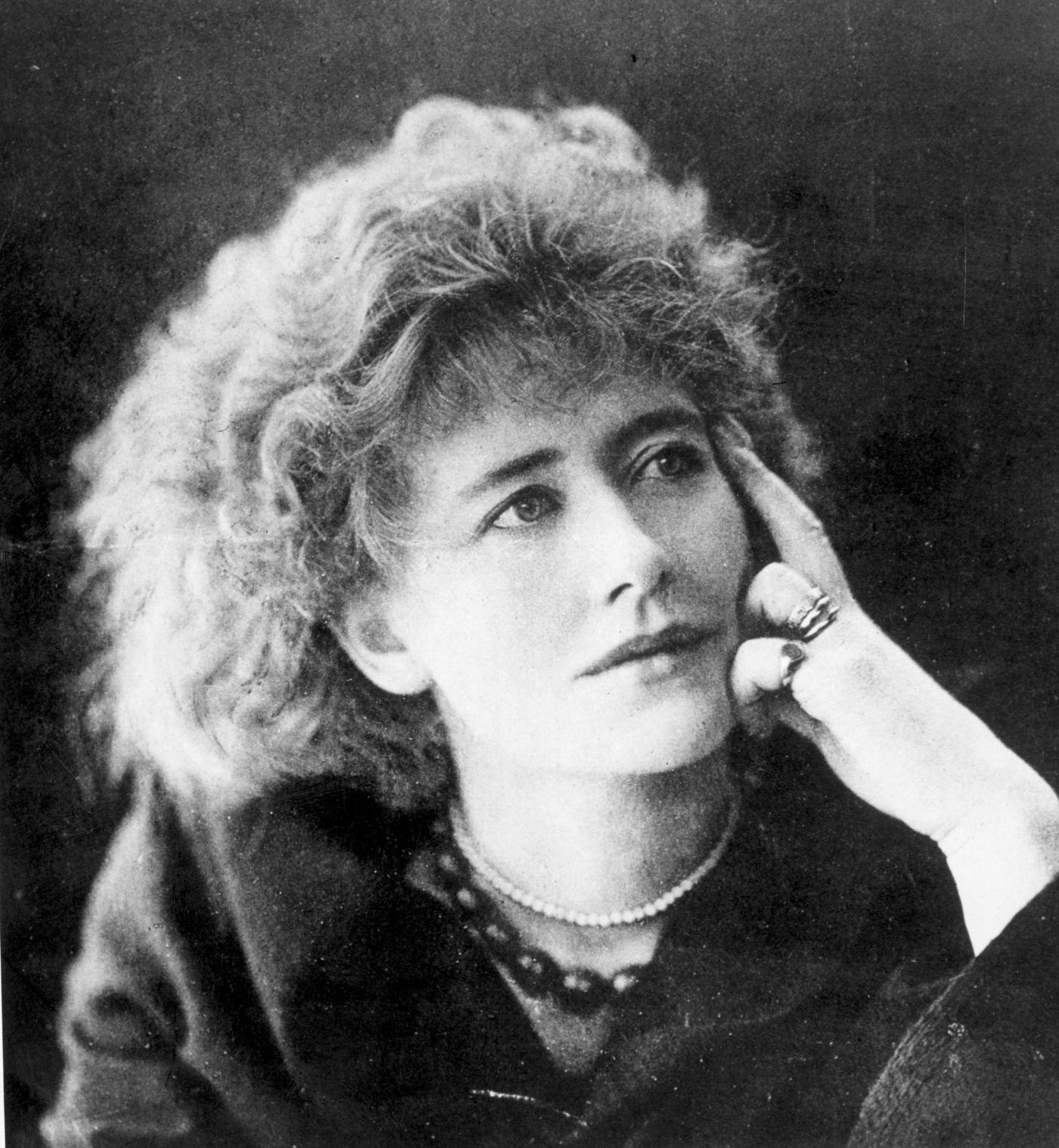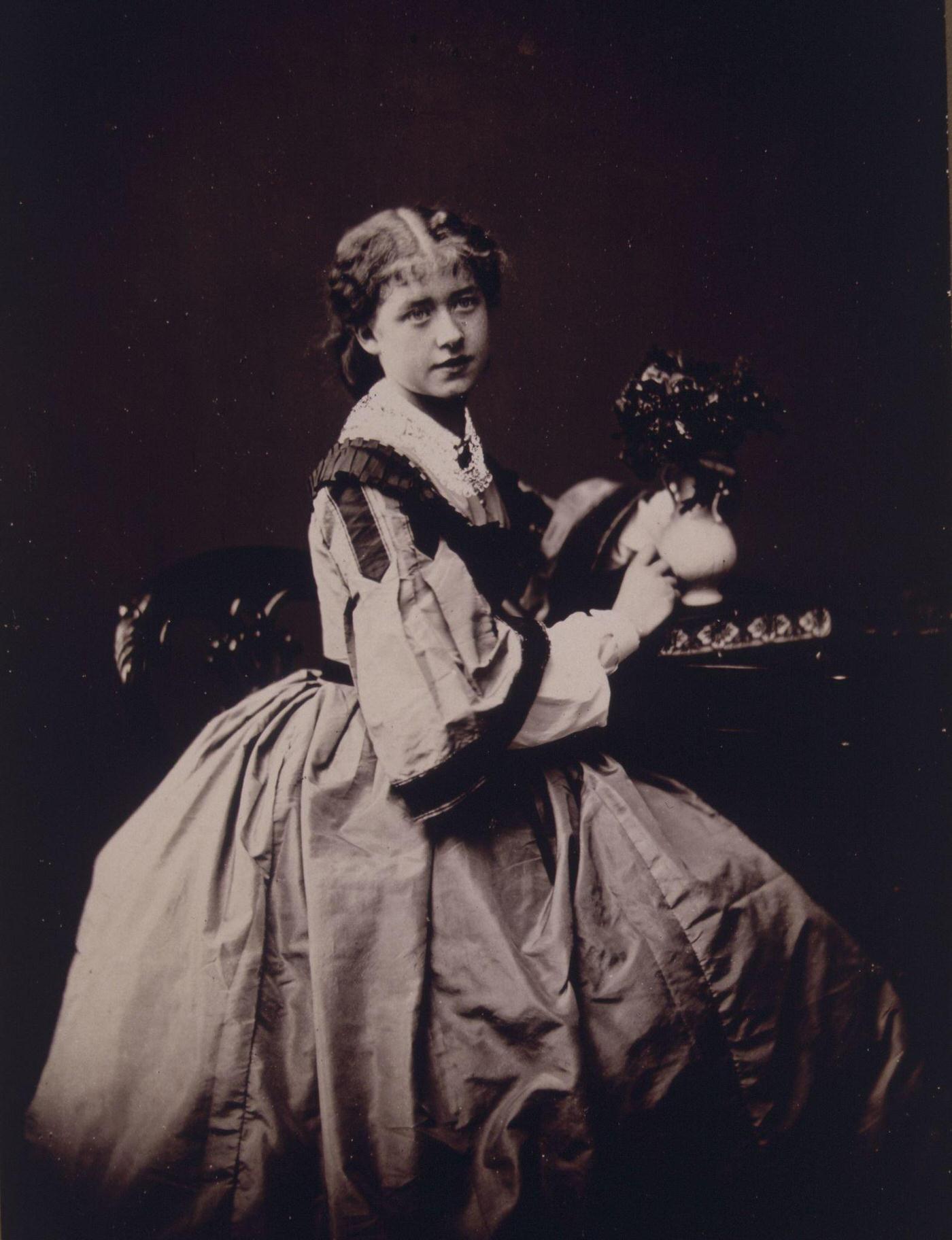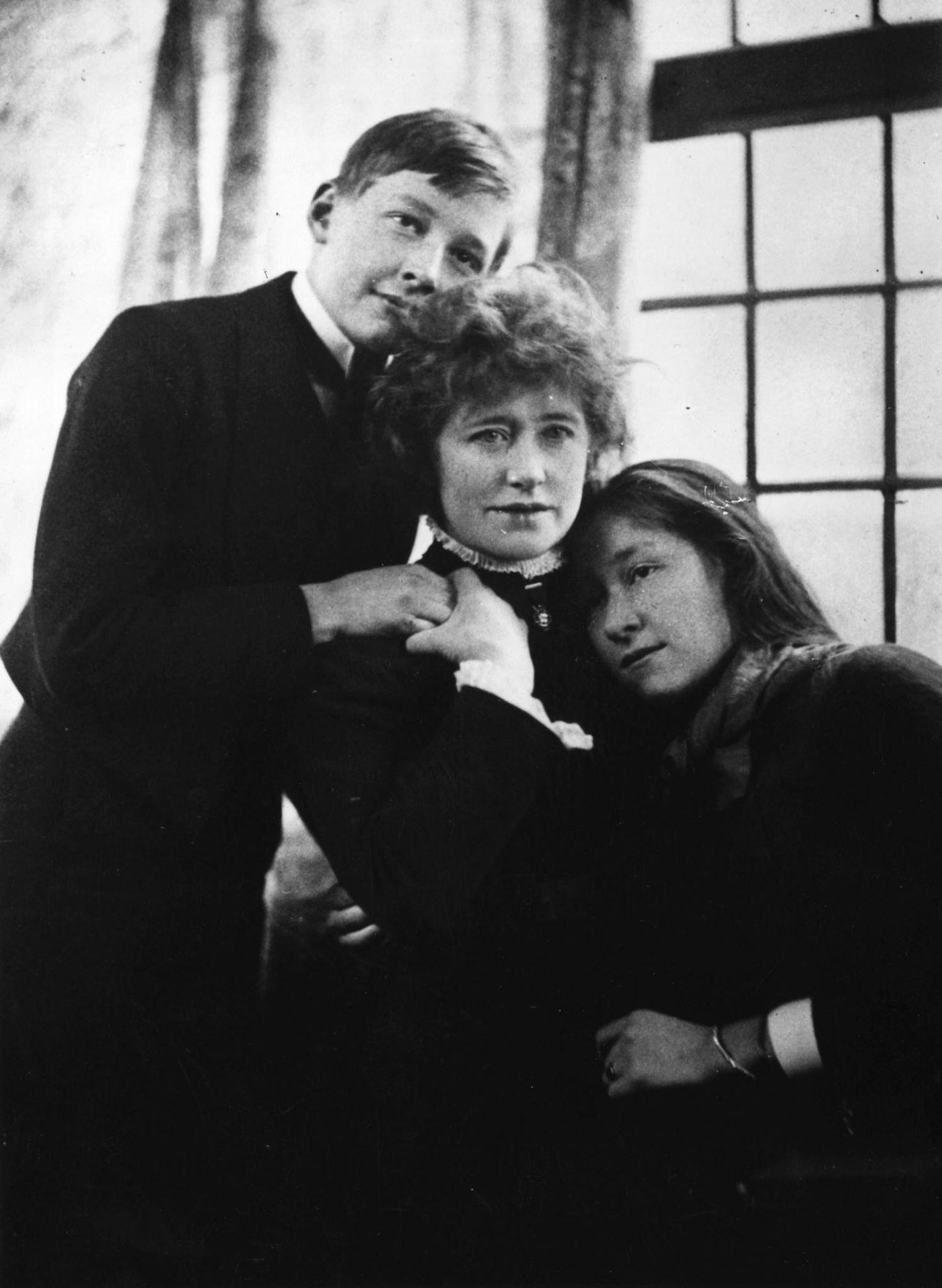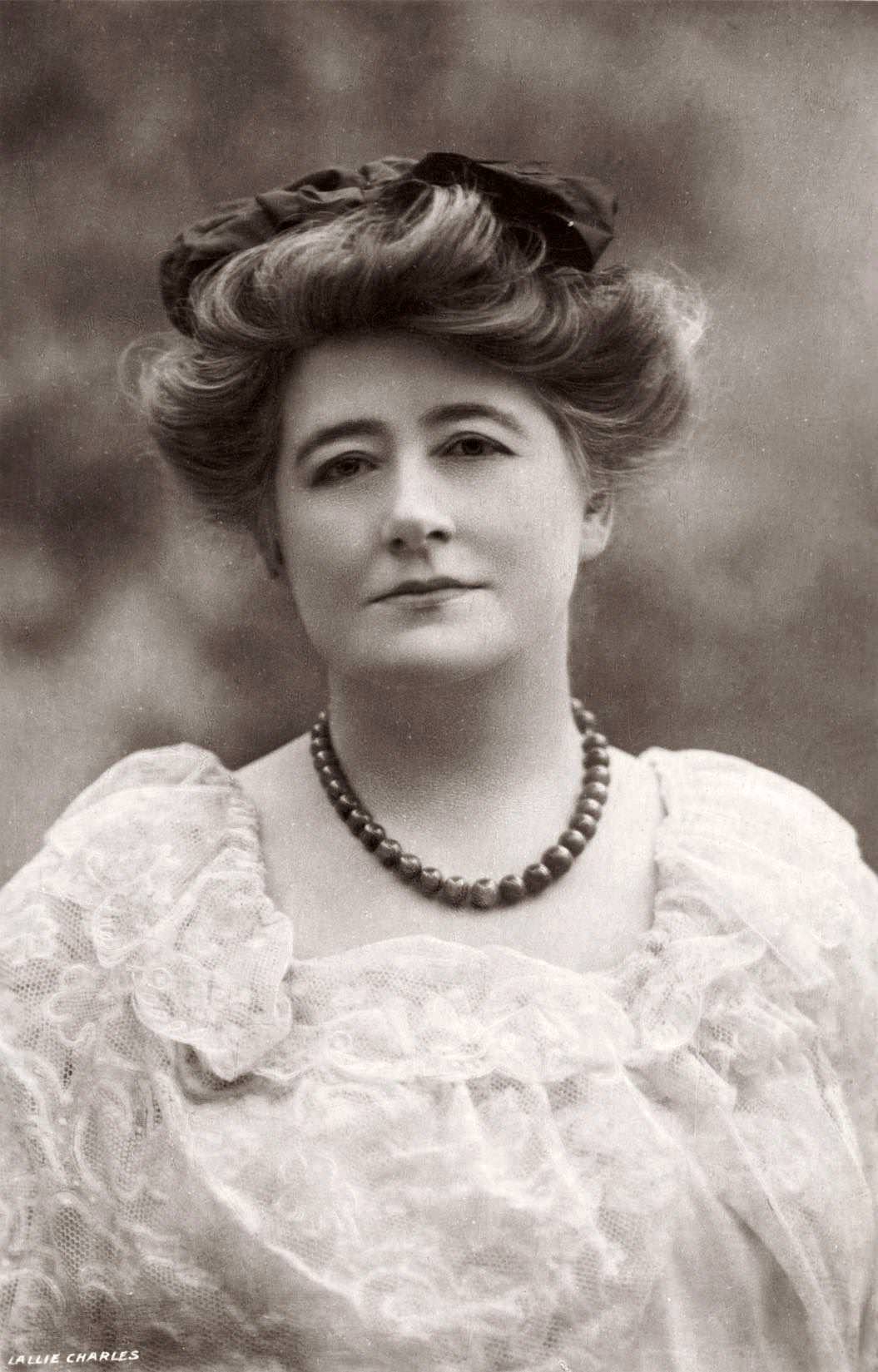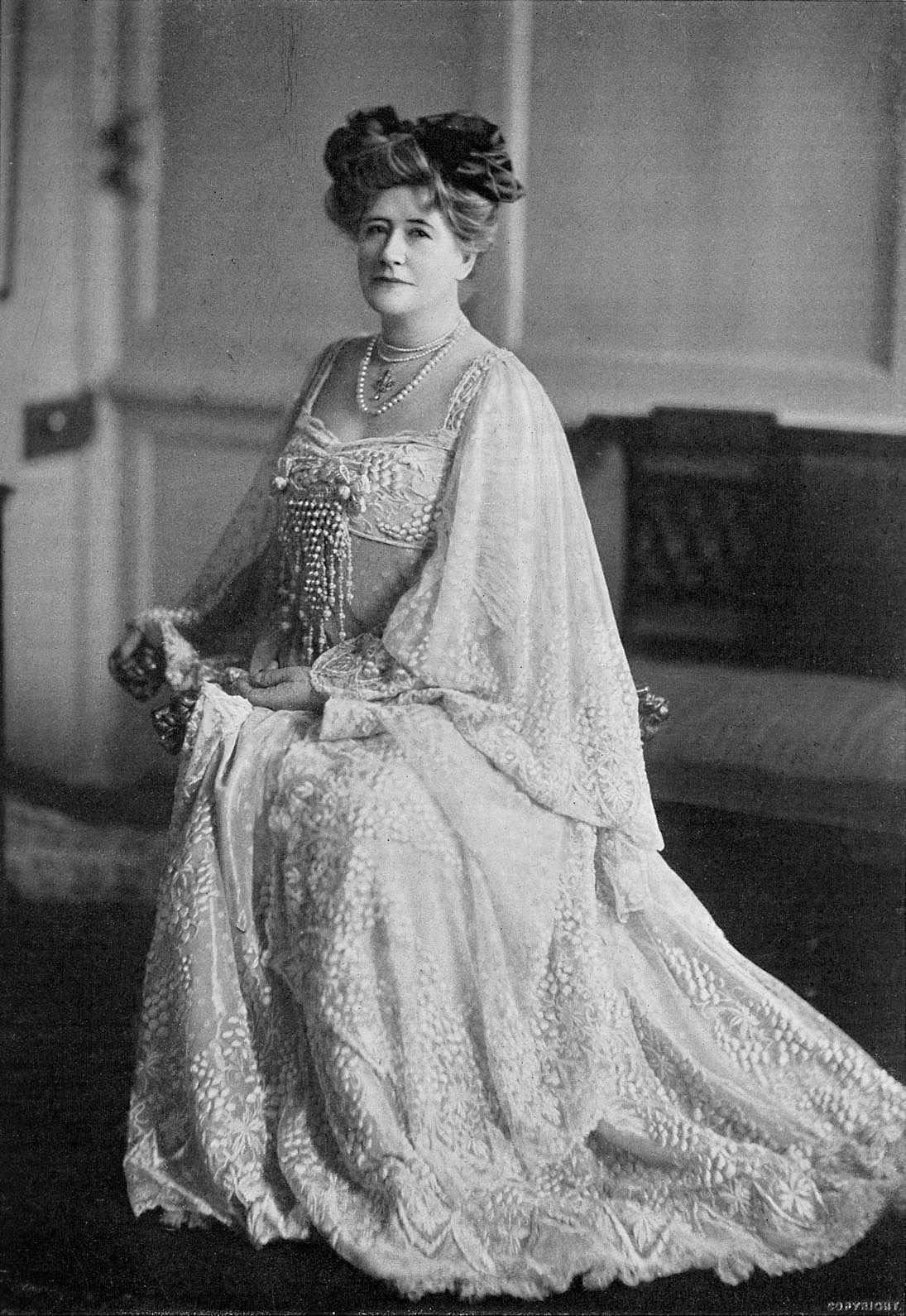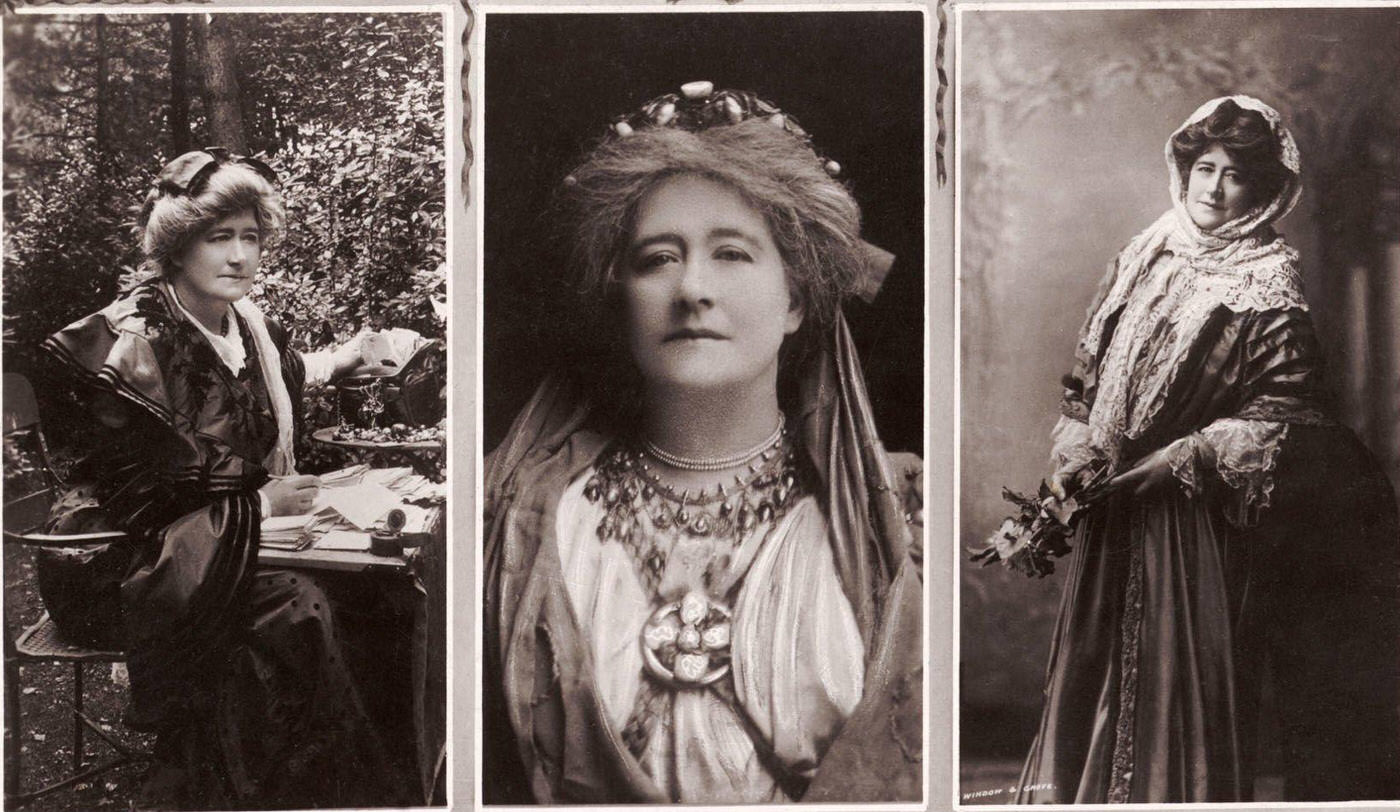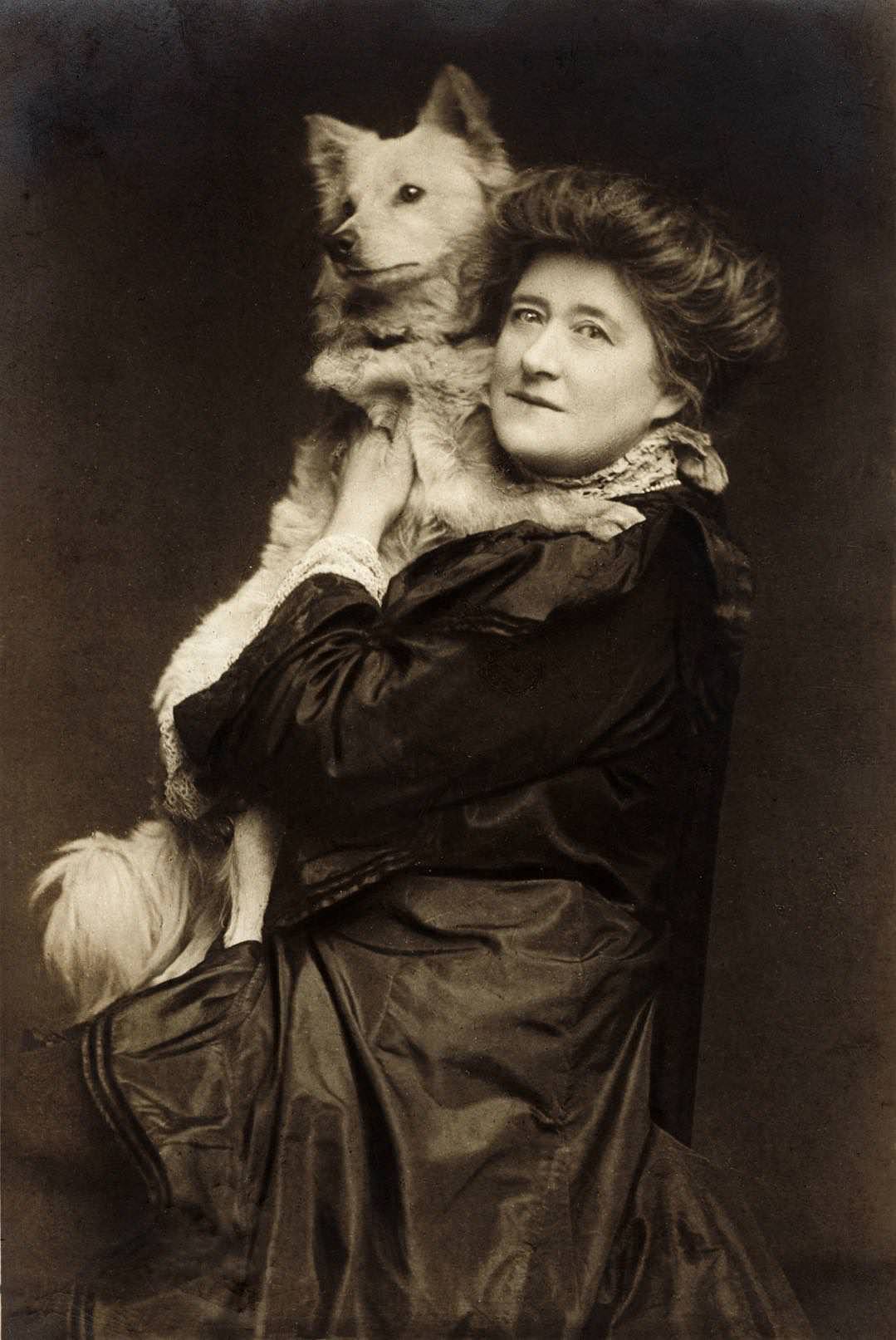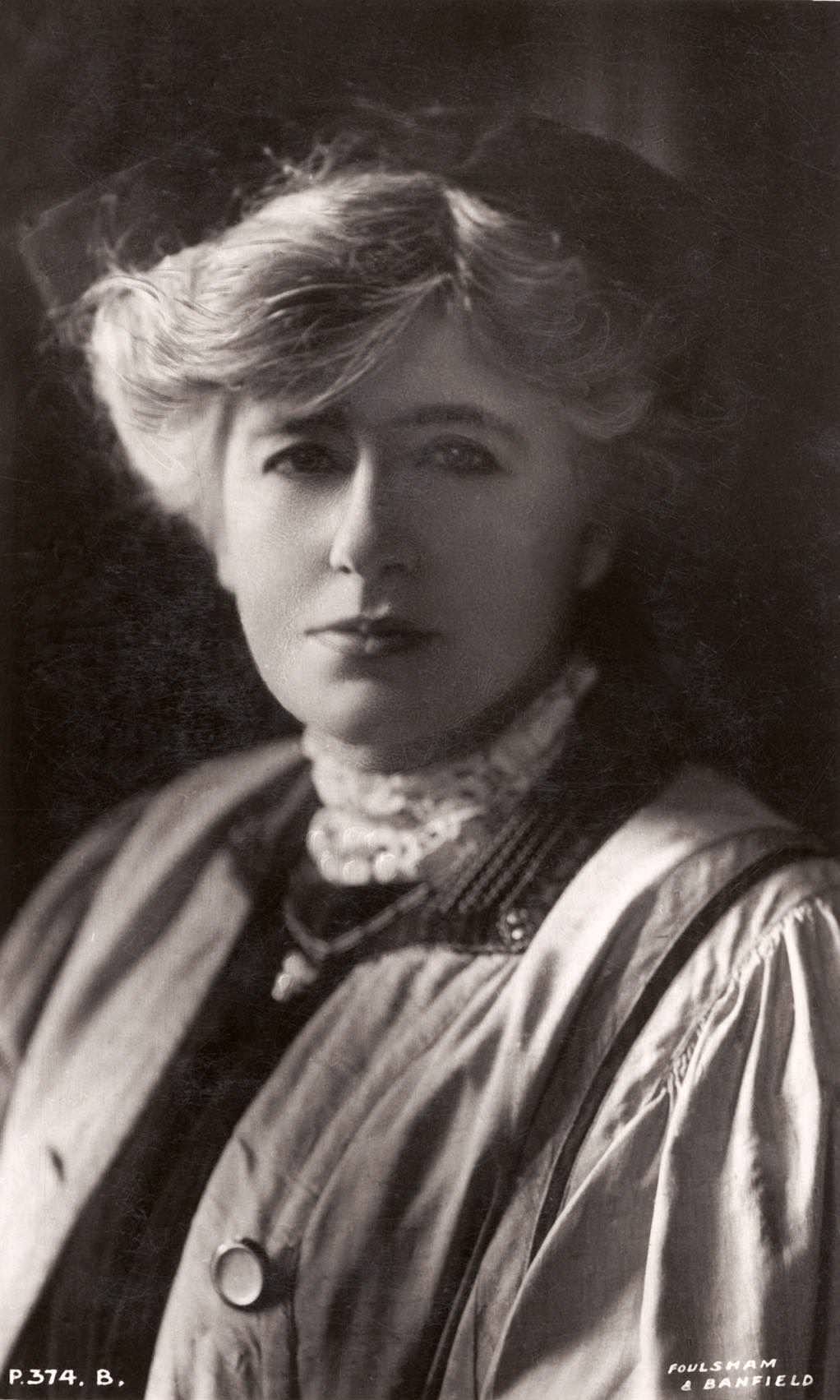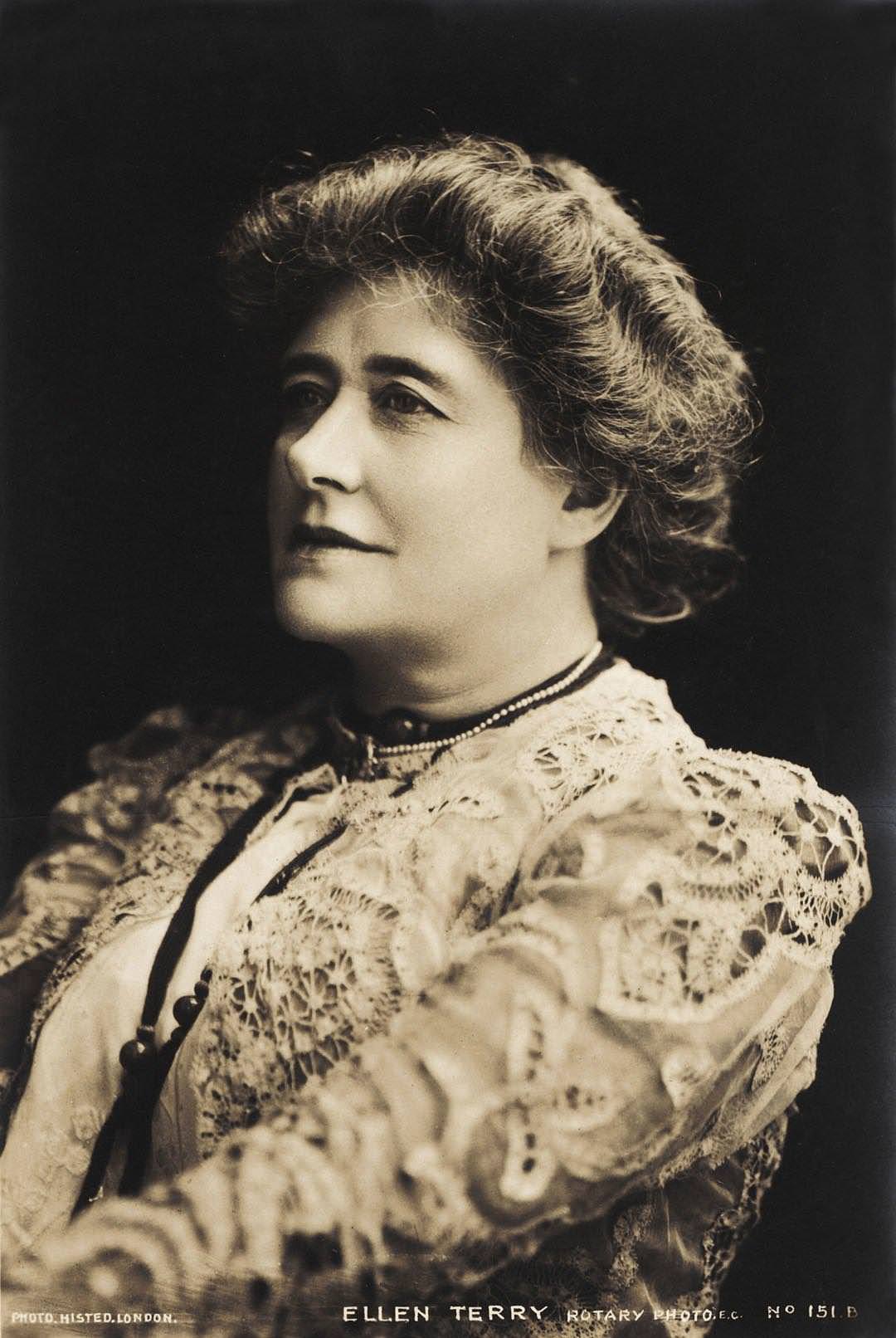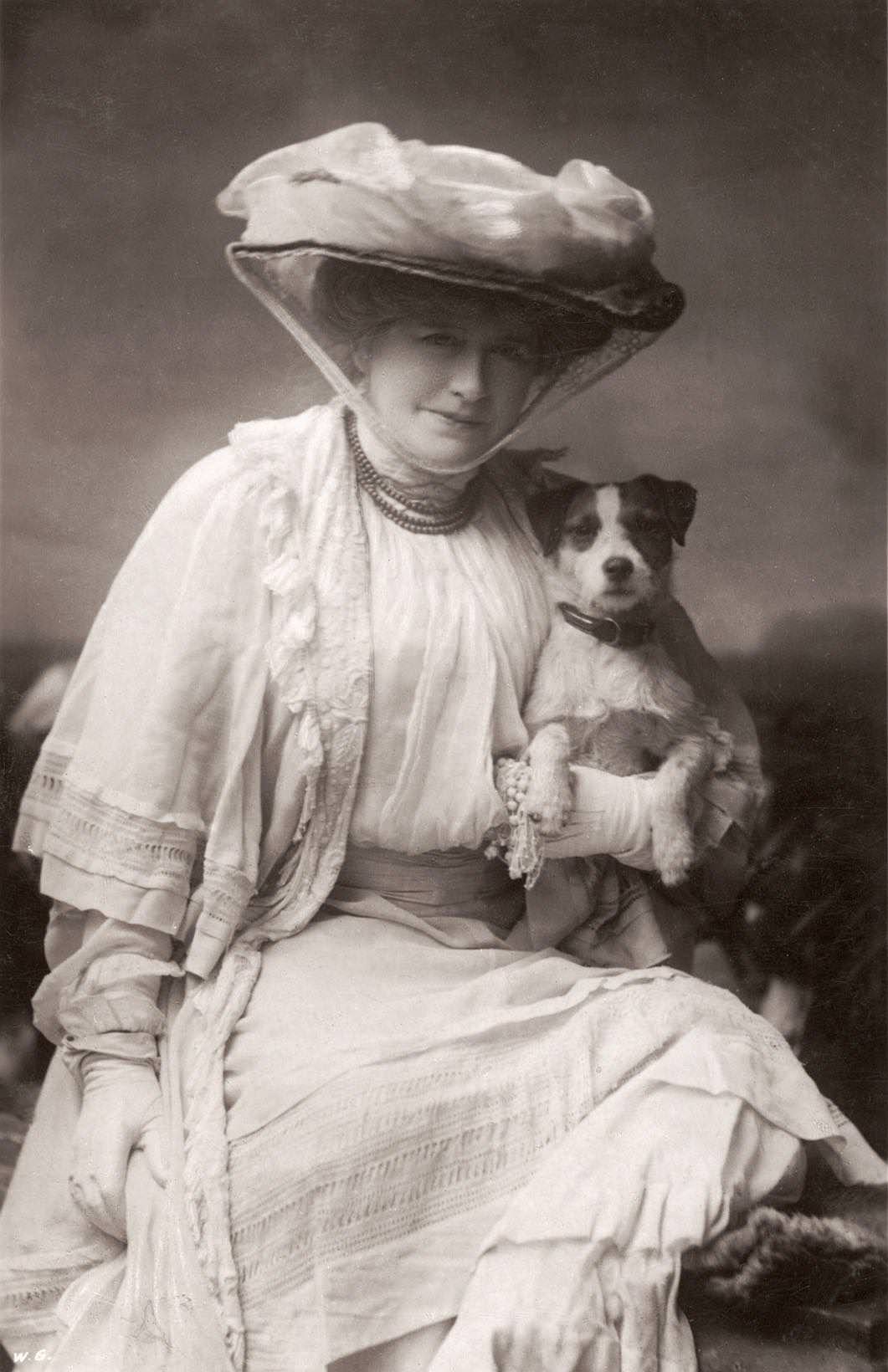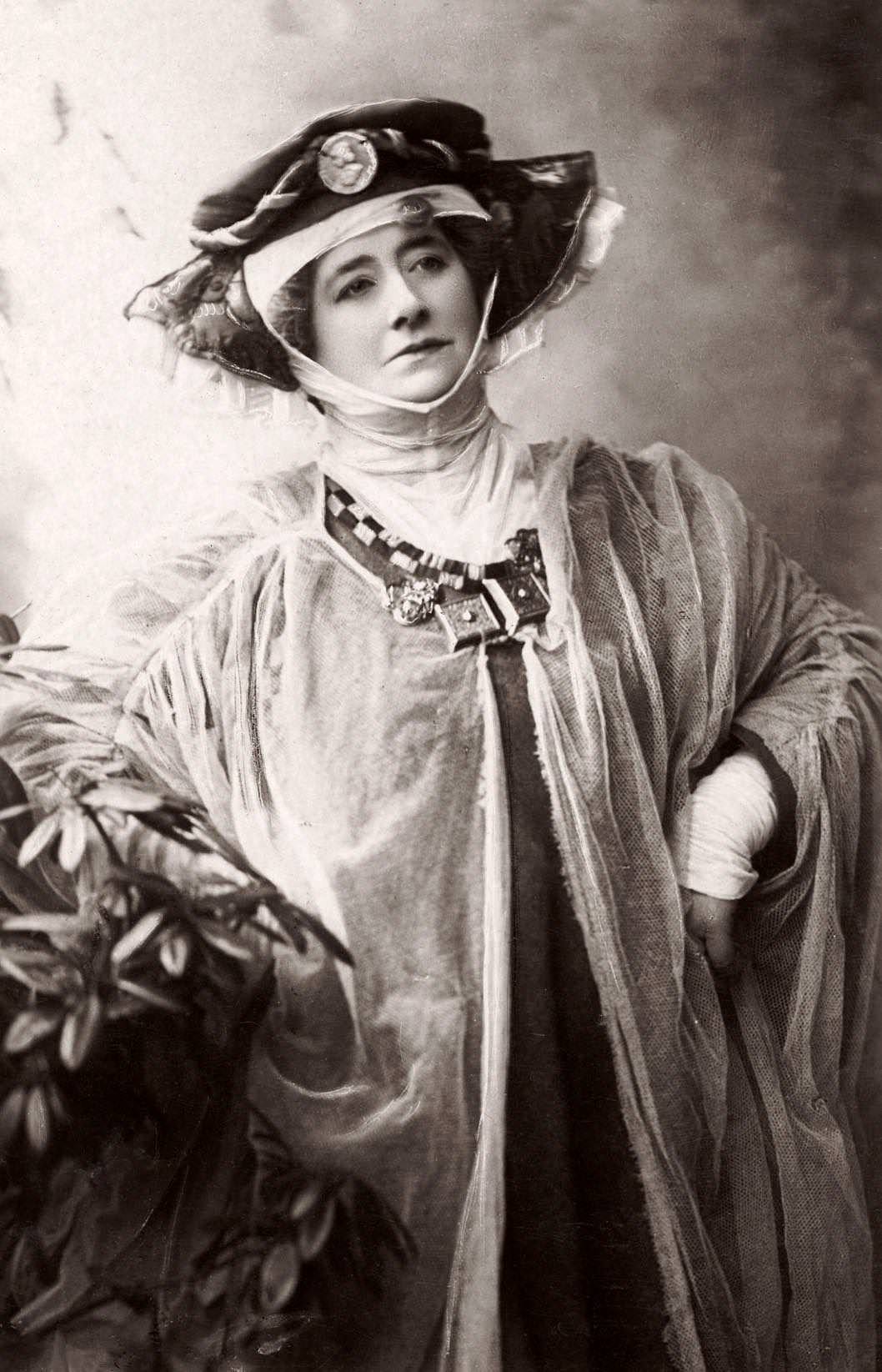Ellen Terry, born Alice Ellen Terry on February 27, 1847, in Coventry, England, was one of the most renowned actresses of the Victorian era. Terry’s career spanned over six decades and significantly influenced the theater world. She was known for her remarkable talent and magnetic stage presence. This post celebrates her life, achievements, and lasting legacy as one of the greatest actresses of her time.
A Theatrical Upbringing
Born into a family of actors, it was almost inevitable that Ellen Terry would follow in her parents’ footsteps. The third of eleven children, Terry’s early years were spent immersed in theater as she traveled with her family throughout England, performing in various productions. At the tender age of nine, she made her professional debut as Mamillius in a production of Shakespeare’s “The Winter’s Tale.”
Rising to Fame
It wasn’t long before Terry’s talent attracted attention, and she quickly rose through the ranks of the theatrical world. At 16, she joined the Theatre Royal in Bristol, where she honed her craft under the guidance of renowned actors and directors. During this period, Terry’s innate ability to captivate audiences and her striking beauty garnered her a legion of fans and admirers.
In 1867, Terry made her London debut as Katherine in “The Taming of the Shrew,” solidifying her status as a leading actress. Her naturalistic approach to acting, combined with her exceptional understanding of human emotion, allowed her to bring her characters to life in a mesmerizing and profoundly moving way.
Collaboration with Sir Henry Irving
Terry’s partnership with the legendary actor-manager Sir Henry Irving is often considered the pinnacle of her career. In 1878, she joined Irving at the Lyceum Theatre in London, marking the beginning of a 24-year collaboration that would see the duo become the most celebrated partnership in British theater history. Together, they produced a series of successful productions, including “Hamlet,” “Macbeth,” and “Othello.”
During their time together, Terry and Irving captivated audiences with their performances and pioneered new approaches to staging and production, transforming the way theater was perceived and experienced. Terry’s interpretations of iconic characters such as Lady Macbeth and Desdemona became the gold standard for future actresses.
The Later Years and Mentorship
In 1902, after her partnership with Irving ended, Terry continued to perform on stage and began to explore other artistic avenues. She also turned her attention to mentorship, nurturing the careers of aspiring actors and actresses and passing on her wealth of knowledge and experience to a new generation of performers.
In 1906, at the age of 59, Terry embarked on a series of lecture tours, sharing her insights on Shakespeare and the art of acting. Her lectures were well-received, and she quickly became a sought-after speaker, further cementing her status as a theatrical icon.
Contributions to Theater and the Arts
Throughout her life, Ellen Terry was a celebrated actress and a driving force behind the evolution of theater during the Victorian era. Her dedication to the craft and her willingness to challenge conventional norms contributed to developing a more naturalistic and emotionally resonant style of acting.
Terry was also an advocate for women in the arts and a trailblazer in her own right. At a time when women’s roles in society were limited, she defied expectations and forged a successful career, inspiring countless women to pursue their artistic dreams.
Honoring a Theatrical Legend
Ellen Terry passed away on July 21, 1928, at the age of 81, leaving behind a rich legacy of artistic achievements and an indelible impact on the theater world. In recognition of her contributions, she was appointed Dame Grand Cross of the Order of the British Empire (
GBE) in 1925, a testament to her status as a true theatrical icon. Even after her death, Terry’s influence continues to be felt in the acting community. Her groundbreaking performances, innovative approaches to staging, and dedication to mentorship have left an indelible mark on the theater world, setting the stage for future generations of actors and actresses.
Many contemporary performers cite Terry as an inspiration, admiring her ability to bring depth and emotional resonance to her characters. Actors, directors, and scholars have studied and analyzed her performances, using them as a benchmark for excellence in the theatrical arts.


